Here are my favorite poems about twins categorized:
- Poems about having twins
- Poems about a twin boy and girl
- Poems about twin sisters
- Poems about twin brothers
- Poems about twins and death
So if you want the best poems about twins, then you’re in the right place.
Let’s get right into it!
- 79 Sincere Poems About Brotherhood
- 71 Comforting Poems About Home
- 167 Wonder-Filled Famous Poems for Kids
- 61 Compelling Poems About Aunts
- 65 Genuine Love Poems For Husbands
- 51 Amorous Love Poems For Wives

Harmonious Poems About Twins
Engross yourself in a collection of the most delightful poems about twins, carefully arranged for your literary pleasure.
Whether you’re seeking works that explore the deep bond and mirroring identity of twins, or reflect on the unique dynamics these pairs bring to life, our selection provides a variety of engaging instances.
With our carefully curated assortment, you have the finest poems about twins all within one convenient location.
So, take a breather to delve into and appreciate the beauty and intrigue of these relationships that have sparked the creativity of poets across time!
Let’s commence this paired poetic exploration!
My #1 Favorite Poem About Twins
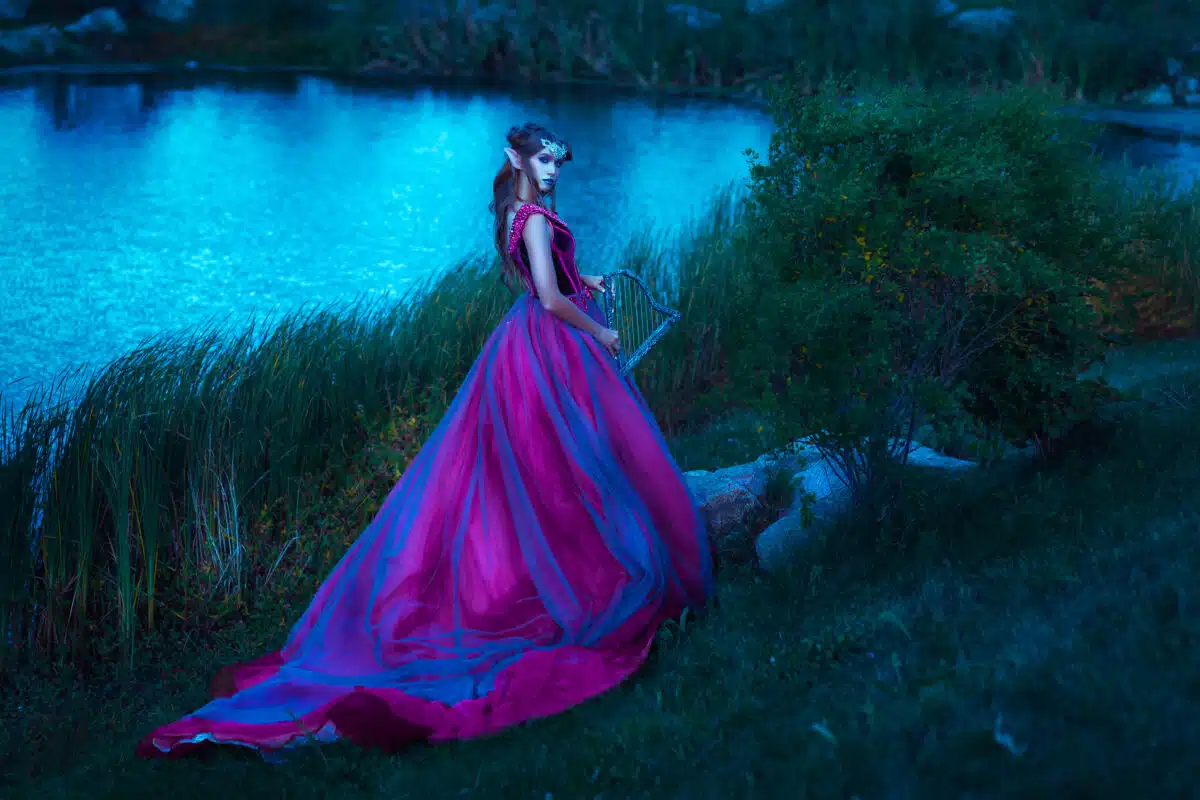
“A Hope” by Charles Kingsley
Twin stars, aloft in ether clear,
Around each other roll alway,
Within one common atmosphere
Of their own mutual light and day.
And myriad happy eyes are bent
Upon their changeless love alway;
As, strengthened by their one intent,
They pour the flood of life and day.
So we through this world’s waning night
May, hand in hand, pursue our way;
Shed round us order, love, and light,
And shine unto the perfect day.
Poems About Having Twins
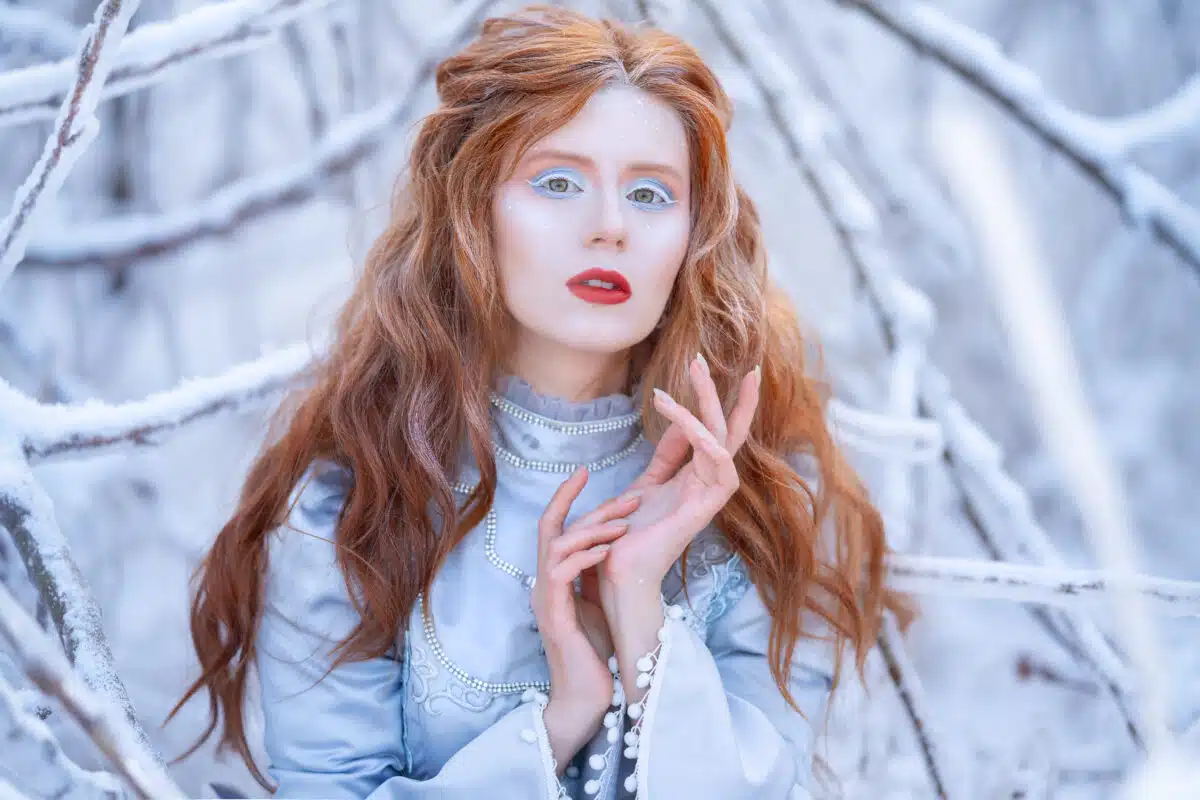
“The Wild Rose and the Snowdrop” by George Meredith
Twin-born are both in beauteousness, most fair
In all that glads the eye and charms the air;
In all that wakes emotions in the mind
And sows sweet sympathies for human kind.
Twin-born, albeit their seasons are apart,
They bloom together in the thoughtful heart;
Fair symbols of the marvels of our state,
Mute speakers of the oracles of fate!
For each fulfilling nature’s law, fulfils
Itself and its own aspirations pure;
Living and dying; letting faith ensure
New life when deathless Spring shall touch the hills.
Each perfect in its place; and each content
With that perfection which its being meant;
Divided not by months that intervene,
But linked by all the flowers that bud between.
Forever smilng thro’ its season brief,
The one in glory and the one in grief:
Forever painting to our museful sight,
How lowlihead and loveliness unite.
Born from the first blind yearning of the earth
To be a mother and give happy birth,
Ere yet the northern sun such rapture brings,
Lo, from her virgin breast the Snowdrop springs;
And ere the snows have melted from the grass,
And not a strip of greensward doth appear,
Save the faint prophecy its cheeks declare,
Alone, unkissed, unloved, behold it pass!
While in the ripe enthronement of the year,
Whispering the breeze, and wedding the rich air
With her so sweet, delicious bridal breath,—
Odorous and exquisite beyond compare,
And starr’d with dews upon her forehead clear,
Fresh-hearted as a Maiden Queen should be
Who takes the land’s devotion as her fee,—
The Wild Rose blooms, all summer for her dower,
Nature’s most beautiful and perfect flower.
“Bedfordshire Ballad. – III.” by Edward Woodley Bowling
Two twins were once born in a Bedfordshire home;
Such events in the best managed households may come;
Tho’, as Tomkins remarked in a voice rather gruff,
“One child at a time for poor folks is enough.”
But it couldn’t be helped, so his wife did her best;
The children were always respectably drest;
Went early to school; were put early to bed;
And had plenty of taters and bacon and bread.
Now we all should suppose that the two, being twins,
Resembled each other as much as two pins:
But no – they as little resembled each other
As the man in the moon is “a man and a brother.”
Fred’s eyes were dark brown, and his hair was jet black;
He was supple in body, and straight in the back,
Learnt his lessons without any trouble at all;
And was lively, intelligent, comely, and tall.
But Willy was thick-set; and freckled and fair;
Had eyes of light blue, and short curly red hair;
And, as I should like you the whole truth to know,
The schoolmaster thought him “decidedly slow.”
But the Parson, who often came into the school,
Had discovered that Willy was far from a fool,
And that tho’ he was not very quick in his pace,
In the end “slow and steady” would win in the race.
Years passed – Fred grew idle and peevish and queer;
Took to skittles, bad language, tobacco, and beer:
Grew tired of his work, when it scarce was begun;
Was Jack of all trades and the master of none.
He began as a labourer, then was a clerk;
Drove a hansom in London by way of a “lark;”
Enlisted, deserted, and finally fled
Abroad, and was thought by his friends to be dead.
But Willy meanwhile was content with his lot;
He was slow, but he always was found on the spot;
He wasted no money on skittles and ale,
But put by his pence, when he could, without fail.
To the Penny Bank weekly his savings he took,
And soon had a pretty round sum in his book:
No miser was he, but he thought it sound sense
In the days of his youth to put by a few pence.
And so he got on; he was no millionaire,
But he always had money enough and to spare;
Could help a poor friend; pay his rent and his rate;
And always put silver at church in the plate.
His brother, meantime, who was thought to be dead,
Had across the Atlantic to Canada fled;
Then had gone to New York; then New Zealand had tried;
But always had failed thro’ perverseness and pride.
He might have done well, but wherever he went,
As soon as his money came in, it was spent;
As of old he tried all trades, and prospered in none,
For he thought that hard work was “a poor sort of fun.”
Then he heard of “the diggings,” and there tried his luck;
He was never deficient in smartness and pluck;
And by means of some work, and more luck, in a year
He managed to make fifteen hundred pounds clear.
Then he thought of old England and Bedfordshire chums,
So back to his parish in triumph he comes;
And need I remark he found many a friend
Right willing to help him his nuggets to spend?
He turned up his nose at his poor brother Bill,
Who was always content to be plodding up hill;
Hard work he disliked, he despised peace and quiet,
So he spent all his time and his money in riot.
There was never a horse-race but Fred he was there;
He went to each meet, meeting, marker and fair;
In a few words, his candle he burnt to the socket,
Till he found one fine day not a rap in His pocket.
Then his poor brother Bill came and lent him a hand;
Gave him work and a share of his own bit of land;
If he means to keep steady I cannot surmise –
Let us hope that at length Fred has learnt to be wise.
But one thing is plain, if you mean to get on,
You will find that success must by patience be won;
In the battle of life do not trust to your luck,
But to honest hard work, perseverance, and pluck.
Don’t turn up your nose at a hard-working chap,
For pride soon or later must meet with mishap;
And wherever your lot in the world may be cast,
“Slow and steady” goes safer than “foolish and fast.”
Take warning by Fred, and avoid for a friend
The man who would tempt you your savings to spend;
Don’t waste your spare money in riotous pranks,
But put it in Penny, or Post-office Banks.
“The Twinses” by James Barron Hope
Two little children toddled up to me,
Their faces fair as faces well could be,
Roses and snow, but pale the roses were
Like flowers fainting for the lack of air.
Sad was the tender study which I gave
The winning creatures, both so sweet and grave,
Two beautiful young Saxons, scarce knee high!
As like as peas! Two Lilliputian men!
Immortal ere they knew it by the pen
Which waketh laughter or bedews the eye.
God bless you, little people! May His hand
Hold you within its hollow all your days!
Smooth all the rugged places, and your ways
Make long and pleasant in a fruitful land!
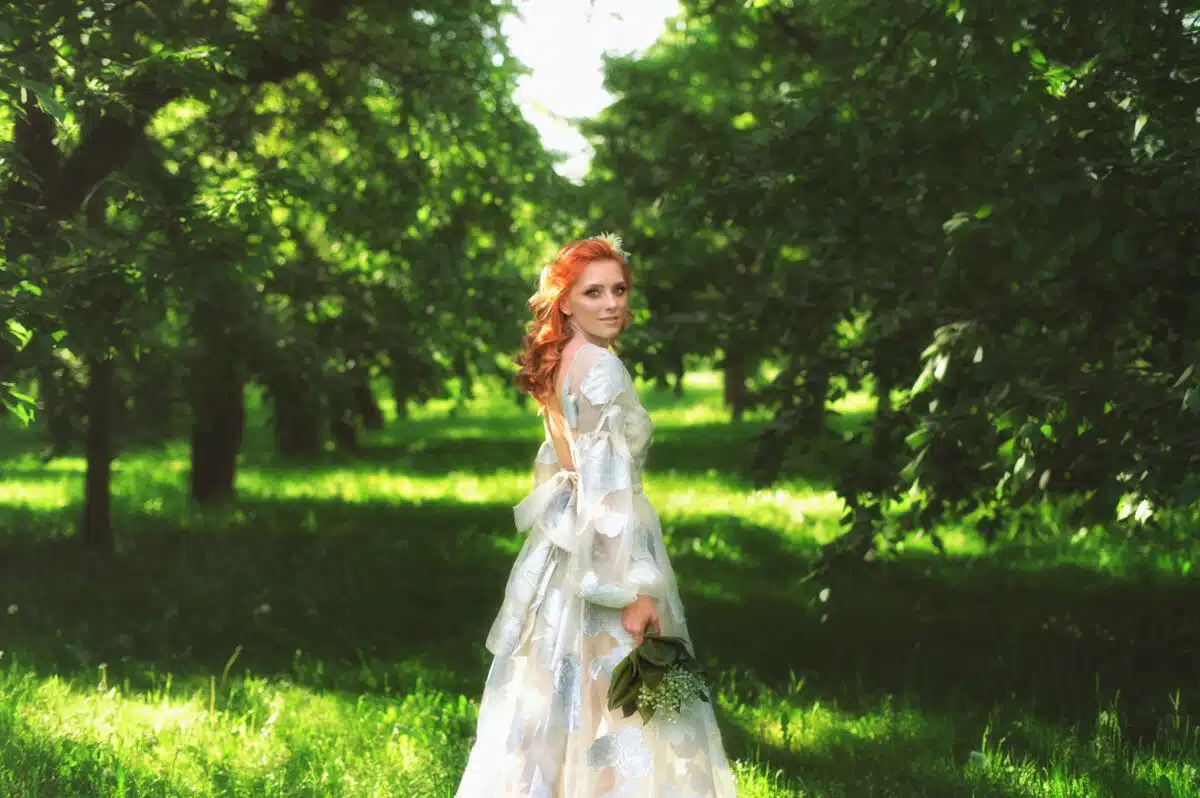
“Are The Children Home?” by Margaret E.M. Sangster
Each day, when the glow of sunset
Fades in the western sky,
And the wee ones, tired of playing,
Go tripping lightly by,
I steal away from my husband,
Asleep in his easy-chair,
And watch from the open door-way
Their faces fresh and fair.
Alone in the dear old homestead
That once was full of life,
Ringing with girlish laughter,
Echoing boyish strife,
We two are waiting together;
And oft, as the shadows come,
With tremulous voice he calls me,
“It is night! are the children home?”
“Yes, love!” I answer him gently,
“They’re all home long ago;”—
And I sing, in my quivering treble,
A song so soft and low,
Till the old man drops to slumber,
With his head upon his hand,
And I tell to myself the number
At home in the better land.
At home, where never a sorrow
Shall dim their eyes with tears!
Where the smile of God is on them
Through all the summer years!
I know,—yet my arms are empty,
That fondly folded seven,
And the mother heart within me
Is almost starved for heaven.
Sometimes, in the dusk of evening,
I only shut my eyes,
And the children are all about me,
A vision from the skies:
The babes whose dimpled fingers
Lost the way to my breast,
And the beautiful ones, the angels,
Passed to the world of the blest.
With never a cloud upon them,
I see their radiant brows;
My boys that I gave to freedom,—
The red sword sealed their vows!
In a tangled Southern forest,
Twin brothers bold and brave,
They fell; and the flag they died for,
Thank God! floats over their grave.
A breath, and the vision is lifted
Away on wings of light,
And again we two are together,
All alone in the night.
They tell me his mind is failing,
But I smile at idle fears;
He is only back with the children,
In the dear and peaceful years.
And still, as the summer sunset
Fades away in the west,
And the wee ones, tired of playing,
Go trooping home to rest,
My husband calls from his corner,
“Say, love, have the children come?”
And I answer, with eyes uplifted,
“Yes, dear! they are all at home.”
“Twins” by Algernon Charles Swinburne
April, on whose wings
Ride all gracious things,
Like the star that brings
All things good to man,
Ere his light, that yet
Makes the month shine, set,
And fair May forget
Whence her birth began,
Brings, as heart would choose,
Sound of golden news,
Bright as kindling dews
When the dawn begins;
Tidings clear as mirth,
Sweet as air and earth
Now that hail the birth,
Twice thus blest, of twins.
In the lovely land
Where with hand in hand
Lovers wedded stand
Other joys before
Made your mixed life sweet:
Now, as Time sees meet,
Three glad blossoms greet
Two glad blossoms more.
Fed with sun and dew,
While your joys were new,
First arose and grew
One bright olive-shoot:
Then a fair and fine
Slip of warm-haired pine
Felt the sweet sun shine
On its leaf and fruit,
And it wore for mark
Graven on the dark
Beauty of its bark
That the noblest name
Worn in song of old
By the king whose bold
Hand had fast in hold
All the flower of fame.
Then, with southern skies
Flattered in her eyes,
Which, in lovelier wise
Yet, reflect their blue
Brightened more, being bright
Here with life’s delight,
And with love’s live light
Glorified anew,
Came, as fair as came
One who bore her name
(She that broke as flame
From the swan-shell white),
Crowned with tender hair
Only, but more fair
Than all queens that were
Themes of oldworld fight,
Of your flowers the third
Bud, or new-fledged bird
In your hearts’ nest heard
Murmuring like a dove
Bright as those that drew
Over waves where blew
No loud wind the blue
Heaven-hued car of love.
Not the glorious grace
Even of that one face
Potent to displace
All the towers of Troy
Surely shone more clear
Once with childlike cheer
Than this child’s face here
Now with living joy.
After these again
Here in April’s train
Breaks the bloom of twain
Blossoms in one birth
For a crown of May
On the front of day
When he takes his way
Over heaven and earth.
Half a heavenly thing
Given from heaven to Spring
By the sun her king,
Half a tender toy,
Seems a child of curl
Yet too soft to twirl;
Seems the flower-sweet girl
By the flower-bright boy.
All the kind gods’ grace,
All their love, embrace
Ever either face,
Ever brood above them:
All soft wings of hours
Screen them as with flowers
From all beams and showers:
All life’s seasons love them
When the dews of sleep
Falling lightliest keep
Eyes too close to peep
Forth and laugh off rest,
Joy from face to feet
Fill them, as is meet:
Life to them be sweet
As their mother’s breast
When those dews are dry,
And in day’s bright eye
Looking full they lie
Bright as rose and pearl,
All returns of joy
Pure of time’s alloy
Bless the rose-red boy,
Guard the rose-white girl.
“To My Twin Boys” by David Lester Richardson
Ye seem not, sweet ones, formed for human care;
Your dreams are tinged by heaven; your glad eyes meet
A charm in every scene; for all things greet
The dawn of life with hues divinely fair.
How brightly yet your laughing features wear
The bloom of early joy! Your bosoms beat
With no bewildering fear; your cup is sweet;
The manna of delight is melting there.
Twin buds of life and love! my hope and pride!
Fair priceless jewels of a father’s heart!
Stars of my home! No saddening shadows hide
Your beauty now. Your stainless years depart
Like glittering streams that softly murmur by,
Or white-winged birds that pierce the sunny sky.
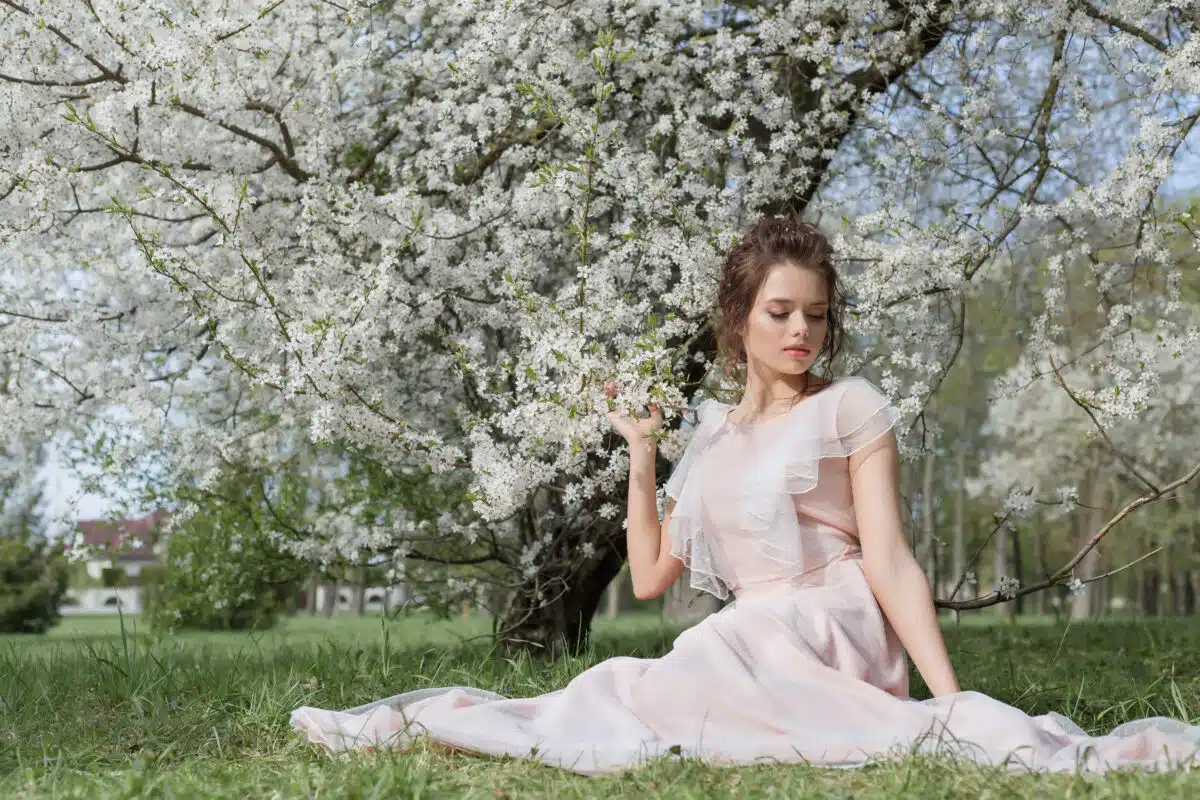
“Song of a Woman with Twins” by Unknown
Ou! Ou! Ou!
When I was young and little,
And thought only of the mealies and the sun
And the wet whispering river water,
How could I tell what would befall me—
How could I know what should come to me!
Why did the demons come?
Why did they make me bear
Two bodies at one birth?
Ah, they were not like demons—
They were like little helpless man-children,
Little and hungry, with curling hands and feet,
Like the son I hoped to bear!
All the night I screamed.
And all the night I bore them—
Why did the witch-man’s drum, beating by my head,
Why did the witch-man’s charms, smelling strong with enchantment—
Why did they not keep the demons
From being born to me?
My father gave him cowries,
Cowries and a gun,
Taken from a white man
That he killed a year ago—
Slowly, slowly,
For good and lasting magic
That the gun should shoot straight.
None had such a gun!
And yet the demons came—
At my right breast a demon,
At my left breast a demon,
Sucking, sucking.
Oh, the little hungry mouths,
Oh, the little curling hands,
That they will drown tonight!
Ou! Ou! Ou!
When I was little and young,
Tumbling laughing in the sunshine,
How should I know what would come to me?
How should I know what would befall me?
Ou! Ou! Ou!
Poems About a Twin Boy and Girl
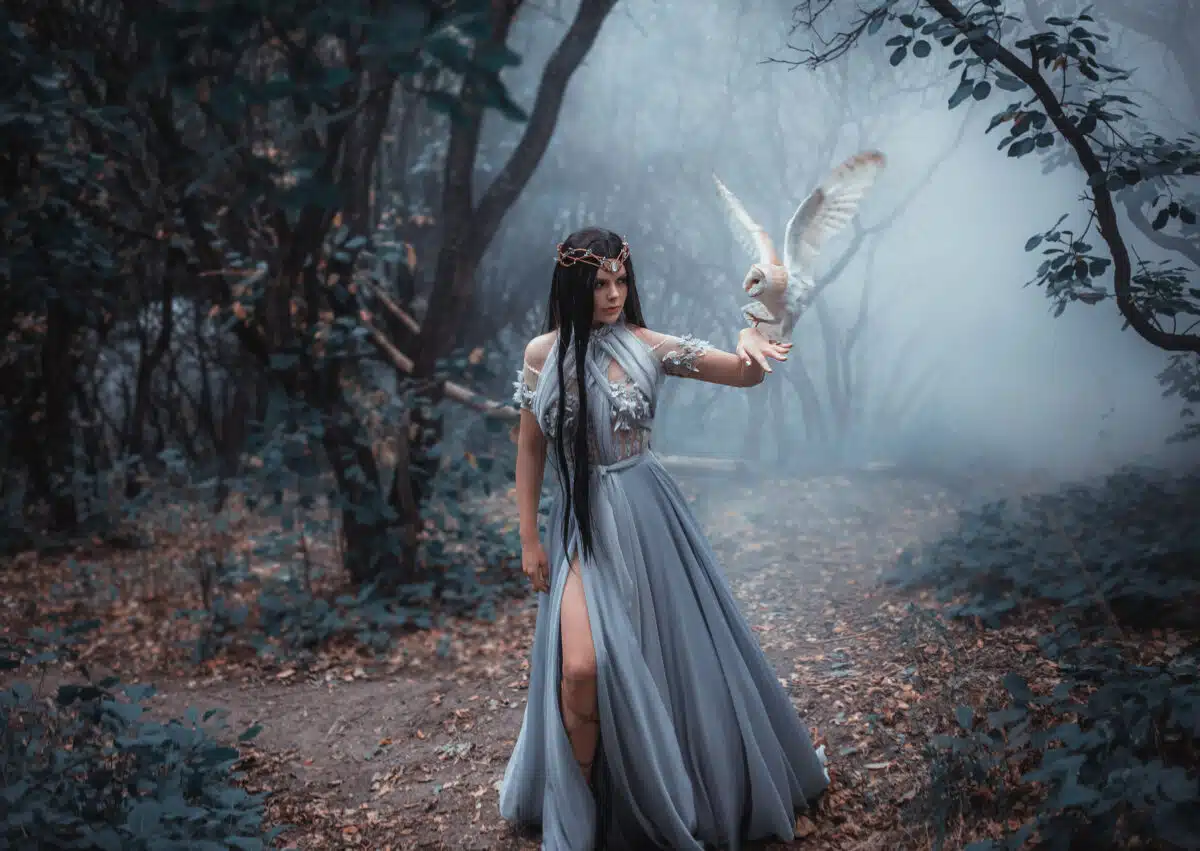
“The Sorrowful Yellow-Bird” by Hannah F. Gould
They’ve caught my little brother;
And he was to me a twin!
They stole him from our mother;
And the cage has shut him in.
I flitted by and found him,
Where he looked so sad and sick,
With the gloomy wires around him,
As he crouched upon a stick.
And when I tried to cheer him
With the cherry in my bill,
To see me there so near him—
Oh! it made him sadder still.
His tender eye was shining
With the brightness of despear
With sorrow and repining,
As he bade me have a care!
He said they’d come and take me,
As they’d taken him; and then
A hopeless prisoner make me,
In the fearful hands of men:—
That, once in their dominion,
I should have to pine away,
And never stretch a pinion,
To my very dying day:—
That the wings which God had made him
For freedom in the air,
Since man had thus betrayed him,
Were stiff and useless there.
And the little darling fellow,
As he showed his golden breast,
He said, beneath the yellow,
He’d a sad and aching breast:—
That since he’d been among them,
They had ruffled it so much,
The only song he’d sung them
Was a shriek beneath their touch.
How can they love to see him,
So sickly and so sad,
When, if they would but free him,
He’d be so well and glad?
My hapless little brother!
I would fain his bondage share:
I had never had another;—
And he’s a captive there!
“Part VIII (The Orphan Twins, or, the Adventures of a Brother and Sister: A Poem)” by David Bigler
The Twins had ever on their natal day
In early June, unto a distant church repaired,—
A league beyond them, through a shady way, [spared.
O’er-hung with trees which time untouched had
In silvery tones, and countenance benign,
The simple maid besought her brother’s leave—
To lead him hence to that endearéd shrine,
Where they thank – offerings to their God might give.
Her ardent wishes and undaunted will,
Defied the sultry sun, and toilsome way,
O’ercame the scruples of the youth so ill,
And drove reluctance with her smiles away.
And Piety, sweet child of heavenly birth,
With silent pleading urged him to the shrine,
Where he might raise his soul from wearying earth,
And heal his sorrowing heart with balm divine.
The maid a longer journey had in view —
The holy shrine the first, the brightest stage,
Where they their withering hopes might ‘ gain renew,
And aid celestial in their plans engage.
She’d steel her breast with armor from the skies,
That she the scoffings cruel might endure,
Which to the helpless are so like to rise,
Or wound the feelings of the friendless poor.
Altho ‘ so wild, romantic were her schemes,
Her wondrous plans were deeply pondered o’er,
And tho ‘ they seemed the offspring of her dreams,
Each one the trace of sober wisdom bore.
Before the dawn the dauntless girl arose,
And hope was sparkling from her radiant face,
Her cheeks were glowing as the damask rose,
Her attire humble, flowed with easy grace.
A gleaner’s ample hat of braided straw,
Upon her lovely brow did lightly rest;
Her frame so slight seemed scarcely formed to draw,
The ponderous load a mile, or league at best.
“Arouse ye, brother!” Emma cried: “the dawn
Now breaks! Aurora’s ruddy wings arise,
And usher in a glorious, golden morn:
Rich—richer glow the flame-enamelled skies.”
The sweet enthusiast first her God addressed,
His cheering smiles besought in earnest prayer;—
And then with harness strange her form embraced,
And helped her brother in the well-stored car.
With hasty steps she crossed the sun-lit lawn,
The sparkling dew she heedless brushed away,
While through her veins the blood excited ran,
And high wrought feeling did the maiden sway.
She seemed unconscious of the load she drew,
Unmindful of the song of matin bird,
That poured from leafy hedge and thicket too,
While in her bosom thoughts tumultuous stirred.
Without an earthly friend to help or cheer,
Up many a rugged steep, by slippery brink,
Her tender limbs did climb, and with them bear,
A draught from which the stoutest man might shrink.
And then with slower pace, and converse sweet,
She cheered the Cripple as she drew him on—
Thus soon they gained the shrine, the blest retreat,
Where fainting souls for succour love to turn.
Though toil and heat the ardent girl had flushed,
Although fatigue her panting breath betrayed,
The chapel’s sight all other feelings hushed,
But those of joy, which all her soul pervade.
By their familiar seat they kneel once more
To pay their vows, and shed the suppliant’s tear;
They pray that God his blessings rich would pour,
Upon their natal day—and natal year.
But of the twain the girl more eager seemed,
More deep the feelings moving in her breast,
More freely o’er her cheek the fountain streamed,
While she her God devoutly thus addressed:—
To thee, my heavenly Saviour!
I raise a fervent cry,
To supplicate thy favor,
And keep Thee ever nigh;
Oh, come! my King most precious,
Come, dwell within my breast;
Give me those joys delicious,
Reserved for the blest.
Whene’er my strength is waning,
And weary grows the road,
Oh, then thy arm sustaining,
Extend to ease the load.
And should I ever murmur,
Embittered with my lot,
Then make my love grow warmer—,
Forgive each sinful thought.
And when the shades of evening,
In darkness veil the land,
When cheer my pathway’s leaving,
And terrors round me band,
When not a friend is near me,
To calm my troubled heart,
Then with thy arm protect me,
And bid my fears depart.
And as I’m heavenward gazing,
O Lord! assist my sight,
Reveal those scenes amazing,
Which yield such rapt delight;
Display the crystal river—
Where life’s pure waters roll,
Which flow and sparkle ever,
Free for the thirsty soul.
Let me behold one moment,
That city jewelled bright,
Where glory reigns all potent,
Enrapturing the sight;
Those walls of dazzling brightness,
Of sapphire, jasper, beryl—
Whose gates of shining whiteness
Are leaves of massive pearl.
I fain would view the lustres
Of heavenly scenes divine,—
I long to reach the clusters
Of Eshcol’s fruitful vine—
To taste the luscious honey,
The richness of the milk,
The mellow fruits so sunny
With rinds like glossy silk.
I’d have that music stealing
Upon my ravished ear,
Which in that region’s pealing
Melodious through the air,
Those songs so sweetly thrilling,
Which heavenly harpers raise,
And ever there are swelling
To fill thy courts with praise.
I would behold the treasures
Of Zion’s sacred hill,
And trace the lasting pleasures
Which e’er the bosom fill.
I ever would be musing
Upon that scene sublime,
Where God Himself’s infusing
Through that celestial clime.
Oh! Paradise imperial!
Illumined by that sun,
Whose radiance immaterial
Proceedeth from God’s throne—
Where Kings and Priests forever,
With bliss and glory full,
Dwell with their Lord and Saviour,
And “God is all in all.”
“The Twins.” by James Whitcomb Riley
One ‘s the pictur’ of his Pa,
And the other of her Ma –
Jes the bossest pair o’ babies ‘at a mortal ever saw!
And we love ’em as the bees
Loves the blossoms of the trees,
A-ridin’ and a-rompin’ in the breeze!
One’s got her Mammy’s eyes –
Soft and blue as Apurl-skies –
With the same sort of a smile, like – Yes,
and mouth about her size, –
Dimples, too, in cheek and chin,
‘At my lips jes wallers in,
A-goin’ to work, er gittin’ home agin.
And the other – Well, they say
That he’s got his Daddy’s way
O’ bein’ ruther soberfied, er ruther extry gay, –
That he either cries his best,
Er he laughs his howlin’est –
Like all he lacked was buttons and a vest!
Look at her! – and look at him! –
Talk about yer “Cheru-bim!”
Roll ’em up in dreams together, rosy arm and chubby limb!
O we love ’em as the bees
Loves the blossoms of the trees,
A-ridin’ and a-rompin’ in the breeze!
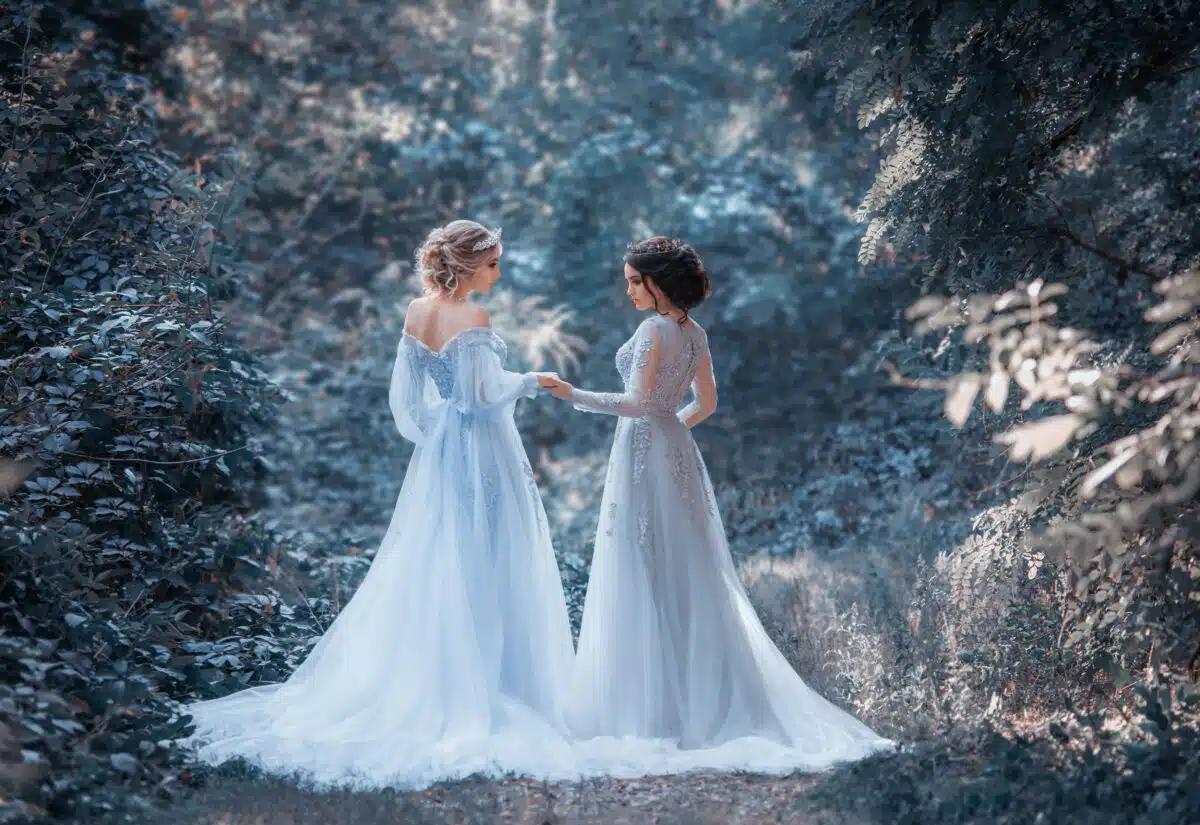
“The Twins” by Alice Argent
Dear little lassie mine,
With your yellow hair a-shine,
And rosebud mouth as sweet as buds in May,
Here, there, I know not where, from day to day,
Dear little tireless feet.
With their patter faint and sweet.
How can we help but love you any way?
Brave little laddie fair,
With your curly locks of hair,
Playing the mimic man, and making bold
To grasp our wealth of love, our heart’s rich gold,
Running a laughing race
With old Monarch’s stately pace.
Poor Monarch who is lazy and grows old!
Lassie and laddie stand
On the threshold of a land
Where childhood parts and shows a rift between
Of light and shade across the tender green,
For womanhood has trod
The furrows that lead up to God,
On to the distant heights of love serene.
I would the twins might be
Kept children for you and me,
Unsoiled and beautiful in heart and mind.
Clearer than sunshine on the summer wind,
My lassie pure and fair,
My lad with his tangled hair,
Here as they stand most lovingly entwined!
Poems About Twin Sisters
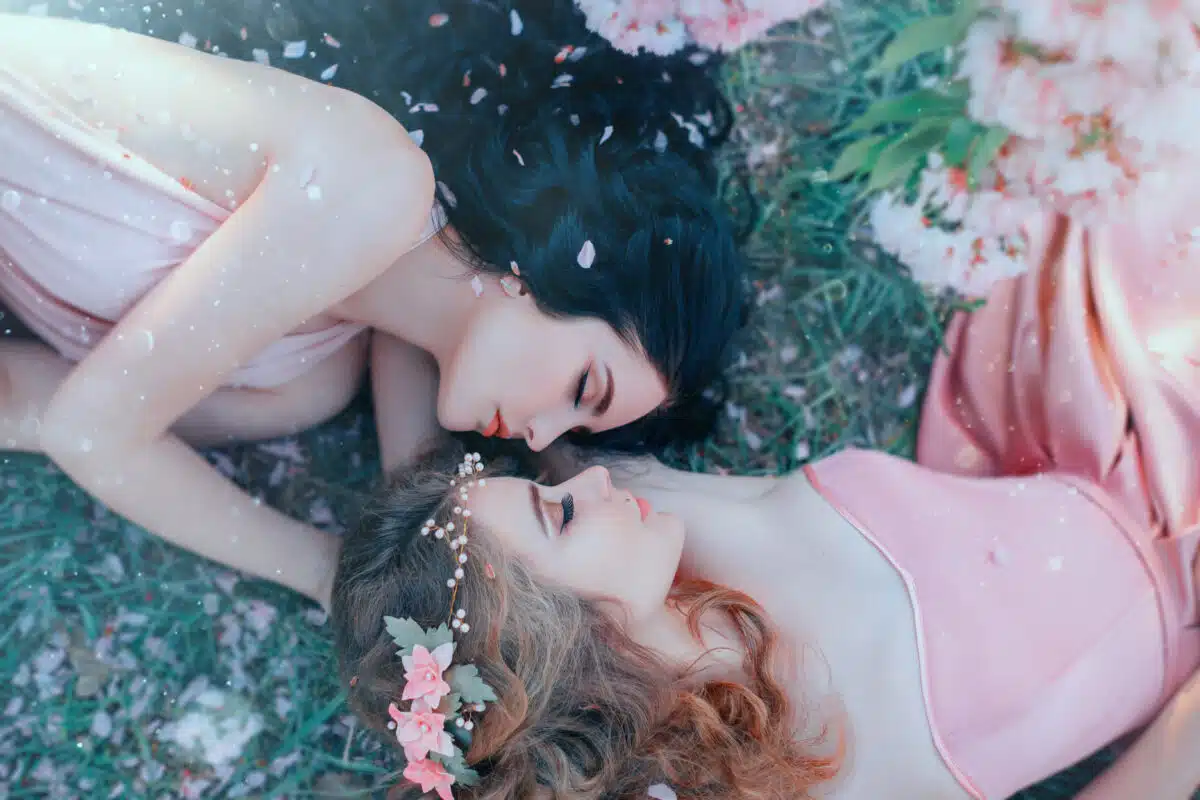
“The Two Good Sisters” by Charles Baudelaire
Debauch and Death are a fine, healthy pair
Of girls, whose love is prodigal and free.
Their virgin wombs, beneath the rags they wear,
Are barren, though they labour constantly.
To the arch poet, foe of families,
Hell’s favourite, a cut-rate whore at court,
Brothels and tombs show in dark galleries
A bed never frequented by remorse.
And coffin, alcove, rich in blasphemy,
As two good sisters would, offer as treats
Terrible pleasures, horrifying sweets.
Debauch, when will your clutches bury me? a rival
Death, will you be coming now
To graft black cypress to her myrtle bough?
“The Twins.” by Richard Hunter
If one were not blue,
While the other is red,
You’d fancy that Su-
San was Mary instead.
If one were not red,
While the other is blue,
‘Twould surely be said,
That Miss Mary was Sue!
“In Clover and Heather” by Wallace Bruce
There are greetings the wide world over,
And blossoms wherever we roam,
But none like the heather and clover
To welcome the wanderer home.
Warm-hearted with kindred devotion,
Twin sisters in sympathy true,
They whisper across the wide ocean,
Love-laden with memory’s dew.
In purple tints woven together
The Hudson shakes hands with the Tweed,
Commingling with Abbotsford’s heather
The clover of Sunnyside’s mead.
A token of friendship immortal
With Washington Irving returns—
Scott’s ivy entwined o’er his portal
By the “Blue-eyed Lassie” of Burns.
Their names by heather-bells wedded.
With fondness Columbia retains;
In freedom ‘s foundation imbedded
The lay of the minstrel remains.
Ay, this their commission and glory,
In redolent bloom to prolong
Love, liberty, legend and story,
That blossom in ballad and song.
So here’s the clover and heather
Of river-side, mountain and glen,
As I stand wi’ doffed bonnet and feather
At the yetts of my forbears again!
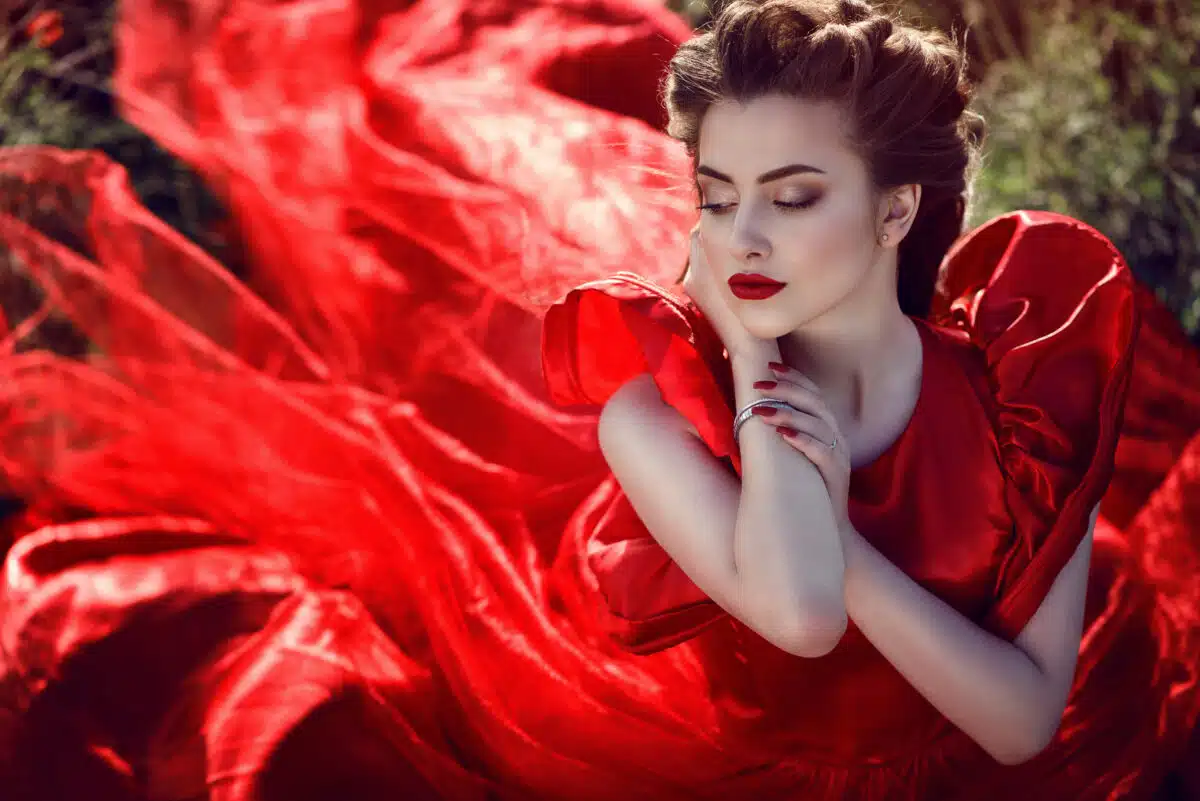
“Envy and Avarice” by Victor Hugo
Envy and Avarice, one summer day,
Sauntering abroad
In quest of the abode
Of some poor wretch or fool who lived that way—
You—or myself, perhaps—I cannot say—
Along the road, scarce heeding where it tended,
Their way in sullen, sulky silence wended;
For, though twin sisters, these two charming creatures,
Rivals in hideousness of form and features,
Wasted no love between them as they went.
Pale Avarice,
With gloating eyes,
And back and shoulders almost double bent,
Was hugging close that fatal box
For which she’s ever on the watch
Some glance to catch
Suspiciously directed to its locks;
And Envy, too, no doubt with silent winking
At her green, greedy orbs, no single minute
Withdrawn from it, was hard a-thinking
Of all the shining dollars in it.
The only words that Avarice could utter,
Her constant doom, in a low, frightened mutter,
“There’s not enough, enough, yet in my store!”
While Envy, as she scanned the glittering sight,
Groaned as she gnashed her yellow teeth with spite,
“She’s more than me, more, still forever more!”
Thus, each in her own fashion, as they wandered,
Upon the coffer’s precious contents pondered,
When suddenly, to their surprise,
The God Desire stood before their eyes.
Desire, that courteous deity who grants
All wishes, prayers, and wants;
Said he to the two sisters: “Beauteous ladies,
As I’m a gentleman, my task and trade is
To be the slave of your behest—
Choose therefore at your own sweet will and pleasure,
Honors or treasure!
Or in one word, whatever you’d like best.
But, let us understand each other—she
Who speaks the first, her prayer shall certainly
Receive—the other, the same boon redoubled!”
Imagine how our amiable pair,
At this proposal, all so frank and fair,
Were mutually troubled!
Misers and enviers, of our human race,
Say, what would you have done in such a case?
Each of the sisters murmured, sad and low
“What boots it, oh, Desire, to me to have
Crowns, treasures, all the goods that heart can crave,
Or power divine bestow,
Since still another must have always more?”
So each, lest she should speak before
The other, hesitating slow and long
Till the god lost all patience, held her tongue.
He was enraged, in such a way,
To be kept waiting there all day,
With two such beauties in the public road;
Scarce able to be civil even,
He wished them both—well, not in heaven.
Envy at last the silence broke,
And smiling, with malignant sneer,
Upon her sister dear,
Who stood in expectation by,
Ever implacable and cruel, spoke
“I would be blinded of one eye!”
“The Witch of Atlas” by Percy Bysshe Shelley
Before those cruel Twins, whom at one birth
Incestuous Change bore to her father Time,
Error and Truth, had hunted from the Earth
All those bright natures which adorned its prime,
And left us nothing to believe in, worth
The pains of putting into learned rhyme,
A lady-witch there lived on Atlas’ mountain
Within a cavern, by a secret fountain.
Her mother was one of the Atlantides:
The all-beholding Sun had ne’er beholden
In his wide voyage o’er continents and seas
So fair a creature, as she lay enfolden
In the warm shadow of her loveliness;
He kissed her with his beams, and made all golden
The chamber of gray rock in which she lay
She, in that dream of joy, dissolved away.
‘Tis said, she first was changed into a vapour,
And then into a cloud, such clouds as flit,
Like splendour-winged moths about a taper,
Round the red west when the sun dies in it:
And then into a meteor, such as caper
On hill-tops when the moon is in a fit:
Then, into one of those mysterious stars
Which hide themselves between the Earth and Mars.
Ten times the Mother of the Months had bent
Her bow beside the folding-star, and bidden
With that bright sign the billows to indent
The sea-deserted sand like children chidden,
At her command they ever came and went
Since in that cave a dewy splendour hidden
Took shape and motion: with the living form
Of this embodied Power, the cave grew warm.
A lovely lady garmented in light
From her own beauty deep her eyes, as are
Two openings of unfathomable night
Seen through a Temple’s cloven roof her hair
Dark the dim brain whirls dizzy with delight.
Picturing her form; her soft smiles shone afar,
And her low voice was heard like love, and drew
All living things towards this wonder new.
And first the spotted cameleopard came,
And then the wise and fearless elephant;
Then the sly serpent, in the golden flame
Of his own volumes intervolved; all gaunt
And sanguine beasts her gentle looks made tame.
They drank before her at her sacred fount;
And every beast of beating heart grew bold,
Such gentleness and power even to behold.
The brinded lioness led forth her young,
That she might teach them how they should forego
Their inborn thirst of death; the pard unstrung
His sinews at her feet, and sought to know
With looks whose motions spoke without a tongue
How he might be as gentle as the doe.
The magic circle of her voice and eyes
All savage natures did imparadise.
And old Silenus, shaking a green stick
Of lilies, and the wood-gods in a crew
Came, blithe, as in the olive copses thick
Cicadae are, drunk with the noonday dew:
And Dryope and Faunus followed quick,
Teasing the God to sing them something new;
Till in this cave they found the lady lone,
Sitting upon a seat of emerald stone.
And universal Pan, ’tis said, was there,
And though none saw him, through the adamant
Of the deep mountains, through the trackless air,
And through those living spirits, like a want,
He passed out of his everlasting lair
Where the quick heart of the great world doth pant,
And felt that wondrous lady all alone,
And she felt him, upon her emerald throne.
And every nymph of stream and spreading tree,
And every shepherdess of Ocean’s flocks,
Who drives her white waves over the green sea,
And Ocean with the brine on his gray locks,
And quaint Priapus with his company,
All came, much wondering how the enwombed rocks
Could have brought forth so beautiful a birth;
Her love subdued their wonder and their mirth.
The herdsmen and the mountain maidens came,
And the rude kings of pastoral Garamant
Their spirits shook within them, as a flame
Stirred by the air under a cavern gaunt:
Pigmies, and Polyphemes, by many a name,
Centaurs, and Satyrs, and such shapes as haunt
Wet clefts, and lumps neither alive nor dead,
Dog-headed, bosom-eyed, and bird-footed.
For she was beautiful her beauty made
The bright world dim, and everything beside
Seemed like the fleeting image of a shade:
No thought of living spirit could abide,
Which to her looks had ever been betrayed,
On any object in the world so wide,
On any hope within the circling skies,
But on her form, and in her inmost eyes.
Which when the lady knew, she took her spindle
And twined three threads of fleecy mist, and three
Long lines of light, such as the dawn may kindle
The clouds and waves and mountains with; and she
As many star-beams, ere their lamps could dwindle
In the belated moon, wound skilfully;
And with these threads a subtle veil she wove
A shadow for the splendour of her love.
The deep recesses of her odorous dwelling
Were stored with magic treasures sounds of air,
Which had the power all spirits of compelling,
Folded in cells of crystal silence there;
Such as we hear in youth, and think the feeling
Will never die yet ere we are aware,
The feeling and the sound are fled and gone,
And the regret they leave remains alone.
And there lay Visions swift, and sweet, and quaint,
Each in its thin sheath, like a chrysalis,
Some eager to burst forth, some weak and faint
With the soft burthen of intensest bliss.
It was its work to bear to many a saint
Whose heart adores the shrine which holiest is,
Even Love’s: and others white, green, gray, and black,
And of all shapes and each was at her beck.
And odours in a kind of aviary
Of ever-blooming Eden-trees she kept,
Clipped in a floating net, a love-sick Fairy
Had woven from dew-beams while the moon yet slept;
As bats at the wired window of a dairy,
They beat their vans; and each was an adept,
When loosed and missioned, making wings of winds,
To stir sweet thoughts or sad, in destined minds.
And liquors clear and sweet, whose healthful might
Could medicine the sick soul to happy sleep,
And change eternal death into a night
Of glorious dreams or if eyes needs must weep,
Could make their tears all wonder and delight,
She in her crystal vials did closely keep:
If men could drink of those clear vials, ’tis said
The living were not envied of the dead.
Her cave was stored with scrolls of strange device,
The works of some Saturnian Archimage,
Which taught the expiations at whose price
Men from the Gods might win that happy age
Too lightly lost, redeeming native vice;
And which might quench the Earth-consuming rage
Of gold and blood till men should live and move
Harmonious as the sacred stars above;
And how all things that seem untameable,
Not to be checked and not to be confined,
Obey the spells of Wisdom’s wizard skill;
Time, earth, and fire the ocean and the wind,
And all their shapes and man’s imperial will;
And other scrolls whose writings did unbind
The inmost lore of Love let the profane
Tremble to ask what secrets they contain.
And wondrous works of substances unknown,
To which the enchantment of her father’s power
Had changed those ragged blocks of savage stone,
Were heaped in the recesses of her bower;
Carved lamps and chalices, and vials which shone
In their own golden beams each like a flower,
Out of whose depth a fire-fly shakes his light
Under a cypress in a starless night.
At first she lived alone in this wild home,
And her own thoughts were each a minister,
Clothing themselves, or with the ocean foam,
Or with the wind, or with the speed of fire,
To work whatever purposes might come
Into her mind; such power her mighty Sire
Had girt them with, whether to fly or run,
Through all the regions which he shines upon.
The Ocean-nymphs and Hamadryades,
Oreads and Naiads, with long weedy locks,
Offered to do her bidding through the seas,
Under the earth, and in the hollow rocks,
And far beneath the matted roots of trees,
And in the gnarled heart of stubborn oaks,
So they might live for ever in the light
Of her sweet presence each a satellite.
‘This may not be,’ the wizard maid replied;
‘The fountains where the Naiades bedew
Their shining hair, at length are drained and dried;
The solid oaks forget their strength, and strew
Their latest leaf upon the mountains wide;
The boundless ocean like a drop of dew
Will be consumed the stubborn centre must
Be scattered, like a cloud of summer dust.
‘And ye with them will perish, one by one;
If I must sigh to think that this shall be,
If I must weep when the surviving Sun
Shall smile on your decay oh, ask not me
To love you till your little race is run;
I cannot die as ye must over me
Your leaves shall glance the streams in which ye dwell
Shall be my paths henceforth, and so farewell!’
She spoke and wept: the dark and azure well
Sparkled beneath the shower of her bright tears,
And every little circlet where they fell
Flung to the cavern-roof inconstant spheres
And intertangled lines of light: a knell
Of sobbing voices came upon her ears
From those departing Forms, o’er the serene
Of the white streams and of the forest green.
All day the wizard lady sate aloof,
Spelling out scrolls of dread antiquity,
Under the cavern’s fountain-lighted roof;
Or broidering the pictured poesy
Of some high tale upon her growing woof,
Which the sweet splendour of her smiles could dye
In hues outshining heaven and ever she
Added some grace to the wrought poesy.
While on her hearth lay blazing many a piece
Of sandal wood, rare gums, and cinnamon;
Men scarcely know how beautiful fire is
Each flame of it is as a precious stone
Dissolved in ever-moving light, and this
Belongs to each and all who gaze upon.
The Witch beheld it not, for in her hand
She held a woof that dimmed the burning brand.
This lady never slept, but lay in trance
All night within the fountain as in sleep.
Its emerald crags glowed in her beauty’s glance;
Through the green splendour of the water deep
She saw the constellations reel and dance
Like fire-flies and withal did ever keep
The tenour of her contemplations calm,
With open eyes, closed feet, and folded palm.
And when the whirlwinds and the clouds descended
From the white pinnacles of that cold hill,
She passed at dewfall to a space extended,
Where in a lawn of flowering asphodel
Amid a wood of pines and cedars blended,
There yawned an inextinguishable well
Of crimson fire full even to the brim,
And overflowing all the margin trim.
Within the which she lay when the fierce war
Of wintry winds shook that innocuous liquor
In many a mimic moon and bearded star
O’er woods and lawns; the serpent heard it flicker
In sleep, and dreaming still, he crept afar
And when the windless snow descended thicker
Than autumn leaves, she watched it as it came
Melt on the surface of the level flame.
She had a boat, which some say Vulcan wrought
For Venus, as the chariot of her star;
But it was found too feeble to be fraught
With all the ardours in that sphere which are,
And so she sold it, and Apollo bought
And gave it to this daughter: from a car
Changed to the fairest and the lightest boat
Which ever upon mortal stream did float.
And others say, that, when but three hours old,
The first-born Love out of his cradle lept,
And clove dun Chaos with his wings of gold,
And like a horticultural adept,
Stole a strange seed, and wrapped it up in mould,
And sowed it in his mother’s star, and kept
Watering it all the summer with sweet dew,
And with his wings fanning it as it grew.
The plant grew strong and green, the snowy flower
Fell, and the long and gourd-like fruit began
To turn the light and dew by inward power
To its own substance; woven tracery ran
Of light firm texture, ribbed and branching, o’er
The solid rind, like a leaf’s veined fan
Of which Love scooped this boat and with soft motion
Piloted it round the circumfluous ocean.
This boat she moored upon her fount, and lit
A living spirit within all its frame,
Breathing the soul of swiftness into it.
Couched on the fountain like a panther tame,
One of the twain at Evan’s feet that sit
Or as on Vesta’s sceptre a swift flame
Or on blind Homer’s heart a winged thought,
In joyous expectation lay the boat.
Then by strange art she kneaded fire and snow
Together, tempering the repugnant mass
With liquid love all things together grow
Through which the harmony of love can pass;
And a fair Shape out of her hands did flow
A living Image, which did far surpass
In beauty that bright shape of vital stone
Which drew the heart out of Pygmalion.
A sexless thing it was, and in its growth
It seemed to have developed no defect
Of either sex, yet all the grace of both,
In gentleness and strength its limbs were decked;
The bosom swelled lightly with its full youth,
The countenance was such as might select
Some artist that his skill should never die,
Imaging forth such perfect purity.
From its smooth shoulders hung two rapid wings,
Fit to have borne it to the seventh sphere,
Tipped with the speed of liquid lightenings,
Dyed in the ardours of the atmosphere:
She led her creature to the boiling springs
Where the light boat was moored, and said: ‘Sit here!’
And pointed to the prow, and took her seat
Beside the rudder, with opposing feet.
And down the streams which clove those mountains vast,
Around their inland islets, and amid
The panther-peopled forests whose shade cast
Darkness and odours, and a pleasure hid
In melancholy gloom, the pinnace passed;
By many a star-surrounded pyramid
Of icy crag cleaving the purple sky,
And caverns yawning round unfathomably.
The silver noon into that winding dell,
With slanted gleam athwart the forest tops,
Tempered like golden evening, feebly fell;
A green and glowing light, like that which drops
From folded lilies in which glow-worms dwell,
When Earth over her face Night’s mantle wraps;
Between the severed mountains lay on high,
Over the stream, a narrow rift of sky.
And ever as she went, the Image lay
With folded wings and unawakened eyes;
And o’er its gentle countenance did play
The busy dreams, as thick as summer flies,
Chasing the rapid smiles that would not stay,
And drinking the warm tears, and the sweet sighs
Inhaling, which, with busy murmur vain,
They had aroused from that full heart and brain.
And ever down the prone vale, like a cloud
Upon a stream of wind, the pinnace went:
Now lingering on the pools, in which abode
The calm and darkness of the deep content
In which they paused; now o’er the shallow road
Of white and dancing waters, all besprent
With sand and polished pebbles: mortal boat
In such a shallow rapid could not float.
And down the earthquaking cataracts which shiver
Their snow-like waters into golden air,
Or under chasms unfathomable ever
Sepulchre them, till in their rage they tear
A subterranean portal for the river,
It fled the circling sunbows did upbear
Its fall down the hoar precipice of spray,
Lighting it far upon its lampless way.
And when the wizard lady would ascend
The labyrinths of some many-winding vale,
Which to the inmost mountain upward tend
She called ‘Hermaphroditus!’ and the pale
And heavy hue which slumber could extend
Over its lips and eyes, as on the gale
A rapid shadow from a slope of grass,
Into the darkness of the stream did pass.
And it unfurled its heaven-coloured pinions,
With stars of fire spotting the stream below;
And from above into the Sun’s dominions
Flinging a glory, like the golden glow
In which Spring clothes her emerald-winged minions,
All interwoven with fine feathery snow
And moonlight splendour of intensest rime,
With which frost paints the pines in winter time.
And then it winnowed the Elysian air
Which ever hung about that lady bright,
With its aethereal vans and speeding there,
Like a star up the torrent of the night,
Or a swift eagle in the morning glare
Breasting the whirlwind with impetuous flight,
The pinnace, oared by those enchanted wings,
Clove the fierce streams towards their upper springs.
The water flashed, like sunlight by the prow
Of a noon-wandering meteor flung to Heaven;
The still air seemed as if its waves did flow
In tempest down the mountains; loosely driven
The lady’s radiant hair streamed to and fro:
Beneath, the billows having vainly striven
Indignant and impetuous, roared to feel
The swift and steady motion of the keel.
Or, when the weary moon was in the wane,
Or in the noon of interlunar night,
The lady-witch in visions could not chain
Her spirit; but sailed forth under the light
Of shooting stars, and bade extend amain
Its storm-outspeeding wings, the Hermaphrodite;
She to the Austral waters took her way,
Beyond the fabulous Thamondocana,
Where, like a meadow which no scythe has shaven,
Which rain could never bend, or whirl-blast shake,
With the Antarctic constellations paven,
Canopus and his crew, lay the Austral lake
There she would build herself a windless haven
Out of the clouds whose moving turrets make
The bastions of the storm, when through the sky
The spirits of the tempest thundered by:
A haven beneath whose translucent floor
The tremulous stars sparkled unfathomably,
And around which the solid vapours hoar,
Based on the level waters, to the sky
Lifted their dreadful crags, and like a shore
Of wintry mountains, inaccessibly
Hemmed in with rifts and precipices gray,
And hanging crags, many a cove and bay.
And whilst the outer lake beneath the lash
Of the wind’s scourge, foamed like a wounded thing,
And the incessant hail with stony clash
Ploughed up the waters, and the flagging wing
Of the roused cormorant in the lightning flash
Looked like the wreck of some wind-wandering
Fragment of inky thunder-smoke this haven
Was as a gem to copy Heaven engraven,
On which that lady played her many pranks,
Circling the image of a shooting star,
Even as a tiger on Hydaspes’ banks
Outspeeds the antelopes which speediest are,
In her light boat; and many quips and cranks
She played upon the water, till the car
Of the late moon, like a sick matron wan,
To journey from the misty east began.
And then she called out of the hollow turrets
Of those high clouds, white, golden and vermilion,
The armies of her ministering spirits
In mighty legions, million after million,
They came, each troop emblazoning its merits
On meteor flags; and many a proud pavilion
Of the intertexture of the atmosphere
They pitched upon the plain of the calm mere.
They framed the imperial tent of their great Queen
Of woven exhalations, underlaid
With lambent lightning-fire, as may be seen
A dome of thin and open ivory inlaid
With crimson silk cressets from the serene
Hung there, and on the water for her tread
A tapestry of fleece-like mist was strewn,
Dyed in the beams of the ascending moon.
And on a throne o’erlaid with starlight, caught
Upon those wandering isles of aery dew,
Which highest shoals of mountain shipwreck not,
She sate, and heard all that had happened new
Between the earth and moon, since they had brought
The last intelligence and now she grew
Pale as that moon, lost in the watery night
And now she wept, and now she laughed outright.
These were tame pleasures; she would often climb
The steepest ladder of the crudded rack
Up to some beaked cape of cloud sublime,
And like Arion on the dolphin’s back
Ride singing through the shoreless air; oft-time
Following the serpent lightning’s winding track,
She ran upon the platforms of the wind,
And laughed to hear the fire-balls roar behind.
And sometimes to those streams of upper air
Which whirl the earth in its diurnal round,
She would ascend, and win the spirits there
To let her join their chorus. Mortals found
That on those days the sky was calm and fair,
And mystic snatches of harmonious sound
Wandered upon the earth where’er she passed,
And happy thoughts of hope, too sweet to last.
But her choice sport was, in the hours of sleep,
To glide adown old Nilus, where he threads
Egypt and Aethiopia, from the steep
Of utmost Axume, until he spreads,
Like a calm flock of silver-fleeced sheep,
His waters on the plain: and crested heads
Of cities and proud temples gleam amid,
And many a vapour-belted pyramid.
By Moeris and the Mareotid lakes,
Strewn with faint blooms like bridal chamber floors,
Where naked boys bridling tame water-snakes,
Or charioteering ghastly alligators,
Had left on the sweet waters mighty wakes
Of those huge forms within the brazen doors
Of the great Labyrinth slept both boy and beast,
Tired with the pomp of their Osirian feast.
And where within the surface of the river
The shadows of the massy temples lie,
And never are erased but tremble ever
Like things which every cloud can doom to die,
Through lotus-paven canals, and wheresoever
The works of man pierced that serenest sky
With tombs, and towers, and fanes, ’twas her delight
To wander in the shadow of the night.
With motion like the spirit of that wind
Whose soft step deepens slumber, her light feet
Passed through the peopled haunts of humankind.
Scattering sweet visions from her presence sweet,
Through fane, and palace-court, and labyrinth mined
With many a dark and subterranean street
Under the Nile, through chambers high and deep
She passed, observing mortals in their sleep.
A pleasure sweet doubtless it was to see
Mortals subdued in all the shapes of sleep.
Here lay two sister twins in infancy;
There, a lone youth who in his dreams did weep;
Within, two lovers linked innocently
In their loose locks which over both did creep
Like ivy from one stem; and there lay calm
Old age with snow-bright hair and folded palm.
But other troubled forms of sleep she saw,
Not to be mirrored in a holy song
Distortions foul of supernatural awe,
And pale imaginings of visioned wrong;
And all the code of Custom’s lawless law
Written upon the brows of old and young:
‘This,’ said the wizard maiden, ‘is the strife
Which stirs the liquid surface of man’s life.’
And little did the sight disturb her soul.
We, the weak mariners of that wide lake
Where’er its shores extend or billows roll,
Our course unpiloted and starless make
O’er its wild surface to an unknown goal:
But she in the calm depths her way could take,
Where in bright bowers immortal forms abide
Beneath the weltering of the restless tide.
And she saw princes couched under the glow
Of sunlike gems; and round each temple-court
In dormitories ranged, row after row,
She saw the priests asleep all of one sort
For all were educated to be so.
The peasants in their huts, and in the port
The sailors she saw cradled on the waves,
And the dead lulled within their dreamless graves.
And all the forms in which those spirits lay
Were to her sight like the diaphanous
Veils, in which those sweet ladies oft array
Their delicate limbs, who would conceal from us
Only their scorn of all concealment: they
Move in the light of their own beauty thus.
But these and all now lay with sleep upon them,
And little thought a Witch was looking on them.
She, all those human figures breathing there,
Beheld as living spirits to her eyes
The naked beauty of the soul lay bare,
And often through a rude and worn disguise
She saw the inner form most bright and fair
And then she had a charm of strange device,
Which, murmured on mute lips with tender tone,
Could make that spirit mingle with her own.
Alas! Aurora, what wouldst thou have given
For such a charm when Tithon became gray?
Or how much, Venus, of thy silver heaven
Wouldst thou have yielded, ere Proserpina
Had half (oh! why not all?) the debt forgiven
Which dear Adonis had been doomed to pay,
To any witch who would have taught you it?
The Heliad doth not know its value yet.
‘Tis said in after times her spirit free
Knew what love was, and felt itself alone
But holy Dian could not chaster be
Before she stooped to kiss Endymion,
Than now this lady like a sexless bee
Tasting all blossoms, and confined to none,
Among those mortal forms, the wizard-maiden
Passed with an eye serene and heart unladen.
To those she saw most beautiful, she gave
Strange panacea in a crystal bowl:
They drank in their deep sleep of that sweet wave,
And lived thenceforward as if some control,
Mightier than life, were in them; and the grave
Of such, when death oppressed the weary soul,
Was as a green and overarching bower
Lit by the gems of many a starry flower.
For on the night when they were buried, she
Restored the embalmers’ ruining, and shook
The light out of the funeral lamps, to be
A mimic day within that deathy nook;
And she unwound the woven imagery
Of second childhood’s swaddling bands, and took
The coffin, its last cradle, from its niche,
And threw it with contempt into a ditch.
And there the body lay, age after age.
Mute, breathing, beating, warm, and undecaying,
Like one asleep in a green hermitage,
With gentle smiles about its eyelids playing,
And living in its dreams beyond the rage
Of death or life; while they were still arraying
In liveries ever new, the rapid, blind
And fleeting generations of mankind.
And she would write strange dreams upon the brain
Of those who were less beautiful, and make
All harsh and crooked purposes more vain
Than in the desert is the serpent’s wake
Which the sand covers all his evil gain
The miser in such dreams would rise and shake
Into a beggar’s lap; the lying scribe
Would his own lies betray without a bribe.
The priests would write an explanation full,
Translating hieroglyphics into Greek,
How the God Apis really was a bull,
And nothing more; and bid the herald stick
The same against the temple doors, and pull
The old cant down; they licensed all to speak
Whate’er they thought of hawks, and cats, and geese,
By pastoral letters to each diocese.
The king would dress an ape up in his crown
And robes, and seat him on his glorious seat,
And on the right hand of the sunlike throne
Would place a gaudy mock-bird to repeat
The chatterings of the monkey. Every one
Of the prone courtiers crawled to kiss the feet
Of their great Emperor, when the morning came,
And kissed alas, how many kiss the same!
The soldiers dreamed that they were blacksmiths, and
Walked out of quarters in somnambulism;
Round the red anvils you might see them stand
Like Cyclopses in Vulcan’s sooty abysm,
Beating their swords to ploughshares; in a band
The gaolers sent those of the liberal schism
Free through the streets of Memphis, much, I wis,
To the annoyance of king Amasis.
And timid lovers who had been so coy,
They hardly knew whether they loved or not,
Would rise out of their rest, and take sweet joy,
To the fulfilment of their inmost thought;
And when next day the maiden and the boy
Met one another, both, like sinners caught,
Blushed at the thing which each believed was done
Only in fancy till the tenth moon shone;
And then the Witch would let them take no ill:
Of many thousand schemes which lovers find,
The Witch found one, and so they took their fill
Of happiness in marriage warm and kind.
Friends who, by practice of some envious skill,
Were torn apart a wide wound, mind from mind!
She did unite again with visions clear
Of deep affection and of truth sincere.
These were the pranks she played among the cities
Of mortal men, and what she did to Sprites
And Gods, entangling them in her sweet ditties
To do her will, and show their subtle sleights,
I will declare another time; for it is
A tale more fit for the weird winter nights
Than for these garish summer days, when we
Scarcely believe much more than we can see.
Poems About Twin Brothers
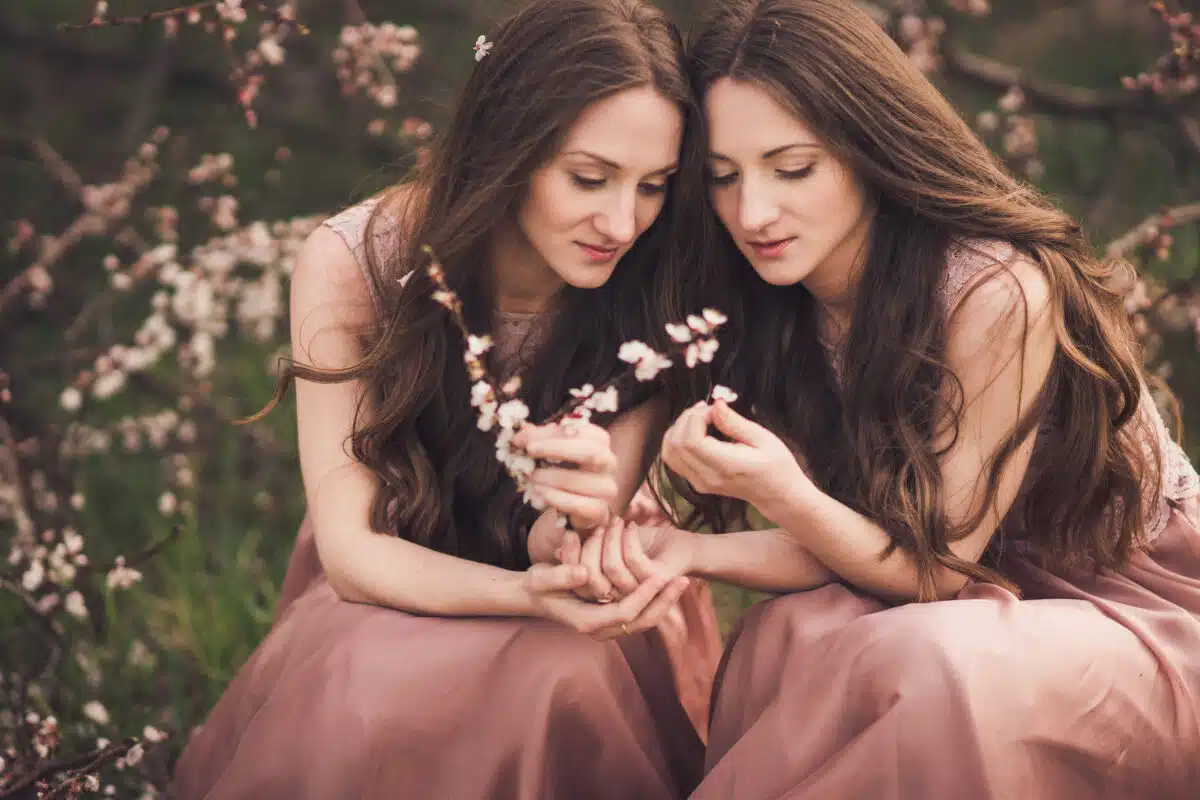
“Homer’s Hymn To Castor And Pollux.” by Percy Bysshe Shelley
Ye wild-eyed Muses, sing the Twins of Jove,
Whom the fair-ankled Leda, mixed in love
With mighty Saturn’s Heaven-obscuring Child,
On Taygetus, that lofty mountain wild,
Brought forth in joy: mild Pollux, void of blame,
And steed-subduing Castor, heirs of fame.
These are the Powers who earth-born mortals save
And ships, whose flight is swift along the wave.
When wintry tempests o’er the savage sea
Are raging, and the sailors tremblingly
Call on the Twins of Jove with prayer and vow,
Gathered in fear upon the lofty prow,
And sacrifice with snow-white lambs, – the wind
And the huge billow bursting close behind,
Even then beneath the weltering waters bear
The staggering ship – they suddenly appear,
On yellow wings rushing athwart the sky,
And lull the blasts in mute tranquillity,
And strew the waves on the white Ocean’s bed,
Fair omen of the voyage; from toil and dread
The sailors rest, rejoicing in the sight,
And plough the quiet sea in safe delight.
“The Twins” by Henry S. Leigh
In form and feature, face and limb,
I grew so like my brother,
That folks got taking me for him,
And each for one another.
It puzzled all our kith and kin,
It reach’d an awful pitch;
For one of us was born a twin,
Yet not a soul knew which.
One day (to make the matter worse),
Before our names were fix’d,
As we were being wash’d by nurse
We got completely mix’d;
And thus, you see, by Fate’s decree,
(Or rather nurse’s whim),
My brother John got christen’d me,
And I got christen’d him.
This fatal likeness even dogg’d
My footsteps when at school,
And I was always getting flogg’d,
For John turned out a fool.
I put this question hopelessly
To every one I knew,
What would you do, if you were me,
To prove that you were you?
Our close resemblance turn’d the tide
Of my domestic life;
For somehow my intended bride
Became my brother’s wife.
In short, year after year the same
Absurd mistakes went on;
And when I died, the neighbors came
And buried brother John!
“The Twins” by Robert William Service
There were two brothers, John and James,
And when the town went up in flames,
To save the house of James dashed John,
Then turned, and lo! his own was gone.
And when the great World War began,
To volunteer John promptly ran;
And while he learned live bombs to lob,
James stayed at home and – sneaked his job.
John came home with a missing limb;
That didn’t seem to worry him;
But oh, it set his brain awhirl
To find that James had – sneaked his girl!
Time passed. John tried his grief to drown;
To-day James owns one-half the town;
His army contracts riches yield;
And John? Well, SEARCH THE POTTER’S FIELD.
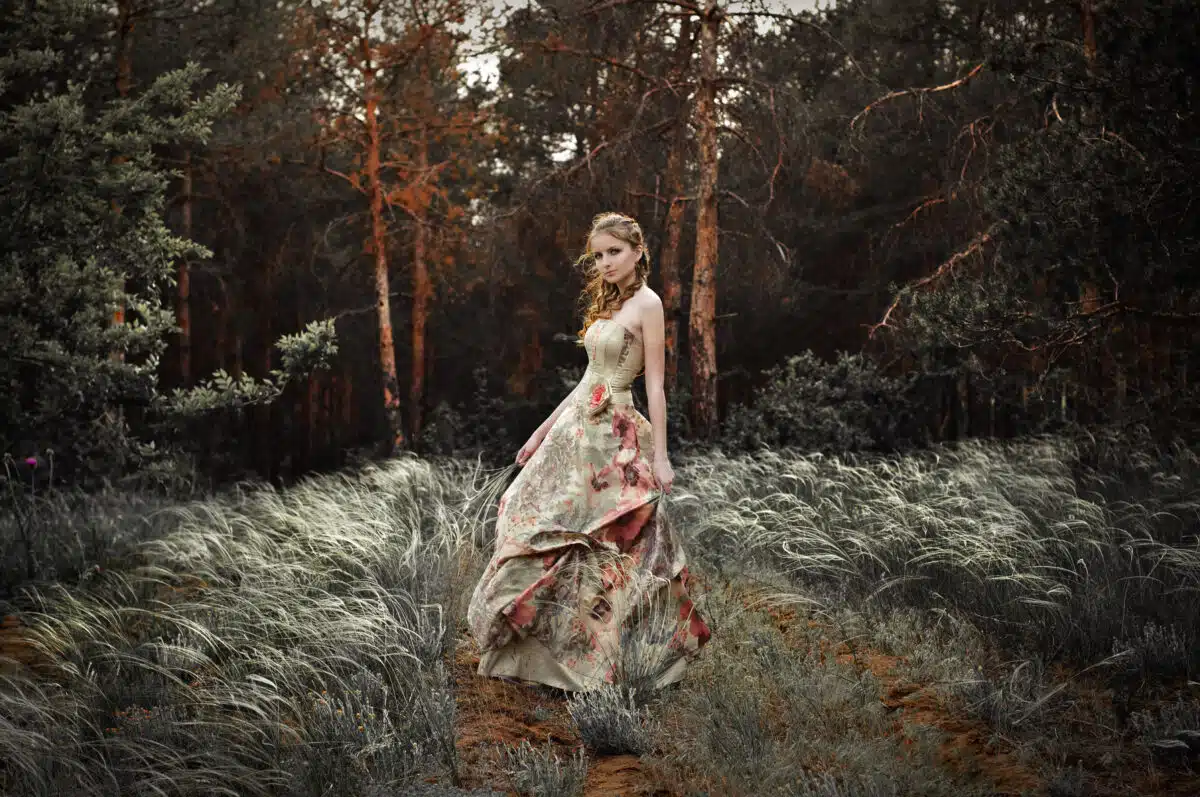
“The Two Brothers” by Ameen Rihani
In the grotto the forest designed,
Where the fire-fly first dreamed of the sun
And the cricket first chirped to the blind
Zoophyte,—in the cave of the mind
We were born and our cradle is one.
We are brothers : together we dwelt
Unknown and unheard and unseen
For aeons ; together we felt
The urge of the forces that melt
The rocks into willowy green.
For aeons together we drifted
In the molten abysses of flame,
While the cycles our heritage sifted
From the vapor and ooze, and uplifted
The image that now bears our name.
I am God : thou art Man : but the light
That mothers the planets, the sea
Of star-dust that roofs every height
Of the Universe, the gulfs of the night,—
They are surging in thee as in me.
But out of the Chaos, to lead us,
The Giants that borrow our eyes
And lend us their shoulders, must heed us;—
They yield us their purpose, they deed us
Forever the worlds and the skies.
“The Great Twin Brethren” by Katharine Lee Bates
The battle will not cease
Till once again on those white steeds ye ride,
O heaven-descended Twins,
Before humanity’s bewildered host.
Our javelins
Fly wide,
And idle is our cannon’s boast.
Lead us, triumphant Brethren, Love and Peace.
A fairer Golden Fleece
Our more adventurous Argo fain would seek,
But save, O Sons of Jove,
Your blended light go with us, vain employ
It were to rove
This bleak,
Blind waste. To unimagined joy
Guide us, immortal Brethren, Love and Peace.
“Igo And Ago” by James Whitcomb Riley
We’re The Twins from Aunt Marinn’s,
Igo and Ago.
When Dad comes, the show begins! –
Iram, coram, dago.
Dad he says he named us two
Igo and Ago
For a poem he always knew,
Iram, coram, dago.
Then he was a braw Scotchman –
Igo and Ago. –
Now he’s Scotch-Amer-i-can.
Iram, coram, dago.
“Hey!” he cries, and pats his knee,
“Igo and Ago,
My twin bairnies, ride wi’ me –
Iram, coram, dago!”
“Here,” he laughs, “ye’ve each a leg,
Igo and Ago,
Gleg as Tam O’Shanter’s ‘Meg’!
Iram, coram, dago!”
Then we mount, with shrieks of mirth –
Igo and Ago, –
The two gladdest twins on earth!
Iram, coram, dago.
Wade and Silas-Walker cry, –
“Igo and Ago –
Annie’s kissin’ ’em ‘good-bye’!” –
Iram, coram, dago.
Aunty waves us fond farewells. –
“Igo and Ago,”
Granny pipes, “tak care yersels!”
Iram, coram, dago.
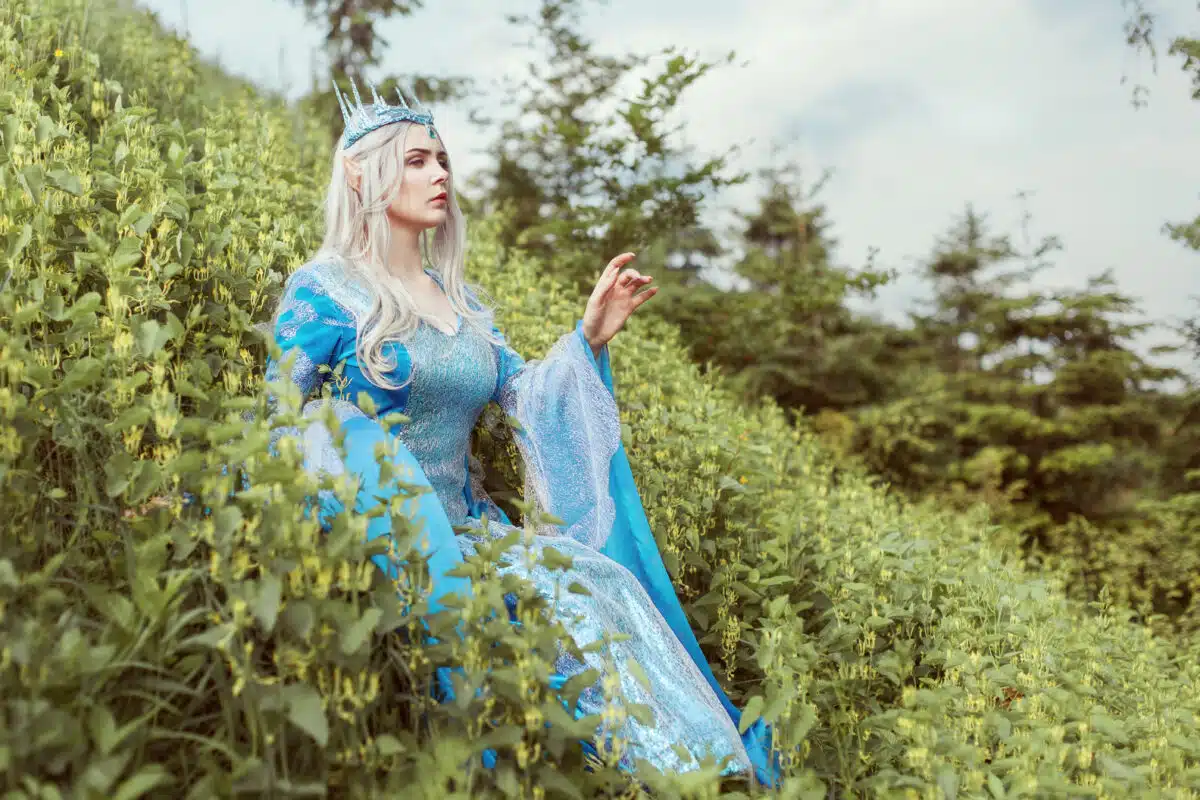
“A Flight Shot” by Maurice Thompson
We were twin brothers, tall and hale,
Glad wanderers over hill and dale.
We stood within the twilight shade
Of pines that rimmed a Southern glade.
He said: “Let ’s settle, if we can,
Which of us is the stronger man.
“We ’ll try a flight shot, high and good,
Across the green glade toward the wood.”
And so we bent in sheer delight
Our old yew bows with all our might.
Our long keen shafts, drawn to the head,
Were poised a moment ere they sped.
As we leaned back a breath of air
Mingled the brown locks of our hair.
We loosed. As one our bow-cords rang,
As one away our arrows sprang.
Away they sprang; the wind of June
Thrilled to their softly whistled tune.
We watched their flight, and saw them strike
Deep in the ground slantwise alike,
So far away that they might pass
For two thin straws of broom-sedge grass!
Then arm in arm we doubting went
To find whose shaft was farthest sent,
Each fearing in his loving heart
That brother’s shaft had fallen short.
But who could tell by such a plan
Which of us was the stronger man?
There at the margin of the wood,
Side by side our arrows stood,
Their red cock-feathers wing and wing,
Their amber nocks still quivering,
Their points deep-planted where they fell
An inch apart and parallel!
We clasped each other’s hands; said he,
“Twin champions of the world are we!”
“Rhyme and Reason. An Apologue.” by George Pope Morris
Two children of the olden time
In Flora’s primrose season,
Were born. The name of one was Rhyme
That of the other Reason.
And both were beautiful and fair,
And pure as mountain stream and air.
As the boys together grew,
Happy fled their hours–
Grief or care they never knew
In the Paphian bowers.
See them roaming, hand in hand,
The pride of all the choral band!
Music with harp of golden strings,
Love with bow and quiver,
Airy sprites on radiant wings,
Nymphs of wood and river,
Joined the Muses’ constant song,
As Rhyme and Reason passed along.
But the scene was changed–the boys
Left their native soil–
Rhyme’s pursuit was idle joys,
Reason’s manly toil:
Soon Rhyme was starving in a ditch,
While Reason grew exceeding rich.
Since the dark and fatal hour,
When the brothers parted,
Reason has had wealth and power–
Rhyme’s poor and broken-hearted!
And now, or bright, or stormy weather,
They twain are seldom seen together.
“The Siamese Twins” by William Linn Keese
I.
‘Tis common to speak of things in pairs
A pair of eyes or a pair of stairs;
And a pair of legs the stairs may climb,
With a pair of trousers for sake of rhyme;
A pair of gloves, and a pair of shoes,
The hands and feet to match if you choose;
A pair of scissors; a pair of bellows;
A pair of capital jolly fellows;
A pair of pigeons, a pair of wings
And pairs of numerous other things;
But the pair with which my lay begins
Is that singular dual,
Original plural,
Known round the world as the Siamese Twins.
II.
From far Siam came my heroes hight,
(The land where the elephant bleaches white,)
Whence Siamese; and if ease they ever
Enjoyed, it must have been there, for never,
When in this country they cast their lots,
Did they heed the teachings of Doctor Watts.
Their names were respectively Eng and Chang,
Their surname Bunker, which has a twang
Of that Island, you know, just off Cape Cod,
Nantucket yclept; and it’s rather odd
That a name so calmly unsentimental
Should be borne by a native Oriental.
Conceive yourself saying “Mr. Bunker!”
To either festive Siamese younker
Bunker, avaunt! thou hast no claim
To Chang and Eng’s united fame.
III.
Their names grew out of a family hitch,
How best to label t’other from which;
And we gather from this domestic plight
That Chang meant “left” and Eng meant “right”,
Suggesting that choice American game,
Which, had Chang and Eng ever played the same,
They certainly would have won off-hand,
For both held the “bowers,” you understand.
As regards their boyhood we’re in the dark,
For only at manhood they made their mark.
No doubt it was much the same as others;
Of Music probably they were lovers;
And if they were the Muse discovers
Their favorite song—”We’re A Band of Brothers!”
IV.
The first that we knew
Of this famous Two,
Was when they were brought to public view
By Barnum the Great,
Who then was in state
On the corner so near St. Paul’s;
And then within those famous walls
Were Thomas Thumb and the Woolly Horse,
By which we were gently fleeced of course;
The Bearded Lady one there might see,
With her chaste moustache and mild goatee;
(And whate’er may be said of Barnum’s taste,
This humbug, at least, was not bare-faced;)
The Quaker Giant was popular then,
A colossal edition of William Penn;
And the Feejee Mermaid held crowds in awe
With her scaly tail and her open jaw.
But everything dwarfed (including Thumb),
And the Happy Family, even, grew glum,
When Barnum produced his greatest wonder
Two Men that never could live asunder!
V.
The people flowed in like Croton water,
Paying, each one, an American quarter;
For these were the days before the War,
When Grant was a tanner and gold was at par.
Little dreamed he of being the hero
To wield the sword and to pen the veto.
The fame of the Twins grew, at once, apace;
And this seems quite an apposite place
To succinctly paint
Their appearance quaint;
To endeavor to fix,
Without being prolix,
The aspect strange of these specimen bricks.
VI.
And in the beginning we must admit
Their beauty would never have made a hit
In court or in bower:
The fact is, their dower
Was something better than beauty or wit,
Stature or strength, or grace of action—
A thing which reminds one of Shakespeare’s Jew,
At the time Antonio looked so blue
A bond of flesh was their great attraction.
This band extended from breast to breast,
And Chang & Eng was the firm expressed.
The business they did was a joint affair,
Like other copartnerships, each had share;
The only thing they could not divorce
Was the gristle that Nature held in force.
Not even in easy Indiana
Could the tie be severed in any manner.
VII.
What shall be said of this state of things,
Prolific of many imaginings?
Suppose, for a moment, Chang were ill,
And felt like remaining perfectly still,
And Eng felt splendidly, au contraire,
And of all things wanted to take the air
How would they fix it! Why Eng, of course,
Must stick to his brother’s side, perforce,
And hear him fret and murmur and groan,
And see pills and powders down him thrown
Be dragged off finally, willy-nilly,
To bed at an hour absurdly silly,
And lie there, trying to sleep in vain,
With thoughts that were certainly most profane.
Or suppose some fell, contagious thing,
Small-pox, for instance, had captured Eng.
Unhappy Chang would be sure to catch it,
And then how inconceivably wretched
The situation, for brother and brother
Would then be pitted against each other!
Or, fancy that Eng was to church inclined,
And Chang preferred to remain behind
Either Eng must relinquish his pious path,
Or Chang go with him in holy wrath!
Ah, how hard the fate
That makes one await
The whim of another without debate!—
And thus with Chang—for Chang was weak,
And Eng had only his wish to speak;
And if Chang demurred,
Then, without a word,
Eng punched him for being so absurd!
Some folks there are
Who quote Hudibras,
And say, that he who runs away
May live to fight another day.
But here there could be no such thing,
For how could Chang run off from Eng?
VIII.
Such were their lively domestic wars,
But never, of course, at exhibition;
The public saw nothing of family jars
When they paid the twenty-five-cent admission.
All they saw was a singular freak
Of nature, aforetime seen by no man,
And was of luck a lucrative streak,
To the blandly-smiling, complacent showman.
Every day brought a curious crowd,
And wonder was vented long and loud,
As the Twins stood up with band between,
To be duly gaped at, and felt, and seen,
By the baby-in-arms and the horrid boy;
The gay gallant and the maiden coy;
The husband young and his blushing bride;
The family man and his smiling dame;
Aunts and mothers – in – law beside;
People in all the paths of fame,
Of every profession and every grade;
Arts, manufactures, commerce and trade;
Of every nation and every name;
Nay, even the deaf and dumb and lame;
And the “deaf and dumb” of course give rise
To the rather matter-of-fact surmise,
That they probably gazed in mute surprise,
All these to the halls of Barnum came,
Till even the sidewalk,
Although quite a wide walk,
Was filled with a jostling crowd of the same.
IX.
And now it was that many M. D’s,
Physicians of high and low degrees,
Began to be rather interested,
And wanted to have the question tested—
If surgical skill could the Twins divide,
And Nature’s whim be with knife defied?
Far and near the excitement spread;
It bothered each Æsculapian head:
They thought of it lying awake in bed;
Thousands of works were bought and read—
But the end of it all was simply this:
They felt less likely to hit than miss.
And so the conundrum—can human art
Take these two-volumes-in-one apart? —
Was given up, and the Twins went on
Attracting their fish with a hook of brawn.
X.
And much of the lucre they laid away
For that axiomatic “rainy day,”
Which means in spirit, if not in letter,
If you have an umbrella you won’t get wetter;
And the Twins resolved in their sunny hours
To be prepared for possible showers.
For, now that I think of it, then, you know,
The Bureau of Weather didn’t show,
And quite important were such utilities
In the absence of daily “Probabilities.”
However, the fact was as I’ve said it
Their Balance of Cash was a chronic credit.
In mercantile phrase, their Stock Account
Was good for a very healthy amount.
So, weary grown of being admired,
Their contract, too, having just expired,
From public life Chang and Eng retired.
XI.
It isn’t recorded in any book,
How each the digit of Barnum shook;
How the Quaker Giant returned their bow,
And called one Thee and the other Thou;
How a gallant and fond adieu they waved
To the hirsute Lady who never shaved;
And with mournful face
Passed by the case
Containing the Mermaid of Feejee race;
And a last and lingering sad look cast
On the Happy Family, now all aghast;
And in silence pressed, for grief made them dumb,
The pigmy fingers of Thomas Thumb—
And so they forever left the scene—
Those undivided Two,
And with the band of flesh between
Marched forth to pastures new.
XII.
We cannot those “pastures new” explore;
They open a matrimonial door,
A door, on the whole, we decline to enter,
And here the Muse must, perforce, content her.
We may, perhaps, mention that damsels two
Enamored became,—chacun à son goût!—
Sailed gleefully over the ocean blue;
And the quartette finding it awkward to woo,
And out of the question to bill and coo,
Were married without the slightest ado.
And whether the parson had double fee
For making these couples glad,
We cannot tell; but we’ll all agree
That he certainly should have had.
XIII.
But, alas, the Twins are now no more!
They died in Eighteen Seventy-four;
And their wives and children, where’er they be,
No part in this chronicle may see.
Only a backward glance to throw
On what was of interest years ago—
As our fathers often delight to talk
Of landmarks and features of Old New York,—
Is our story’s aim —except to pay,
In a sort of bio-graphical way,
A tribute, albeit of little worth,
To the famous Brothers of Siamese birth.
And when they died, it was good to know
That one fear of old was at once decided;
They had lived very much together, and so
In death they were not divided.

“Romulus and Remus” by Rudyard Kipling
Oh, little did the Wolf-Child care,
When first he planned his home,
What City should arise and bear
The weight and state of Rome.
A shiftless, westward-wandering tramp,
Checked by the Tiber flood,
He reared a wall around his camp
Of uninspired mud.
But when his brother leaped the Wall
And mocked its height and make,
He guessed the future of it all
And slew him for its sake.
Swift was the blow, swift as the thought
Which showed him in that hour
How unbelief may bring to naught
The early steps of Power.
Foreseeing Time’s imperilled hopes
Of Glory, Grace, and Love,
All singers, Caesars, artists, Popes,
Would fail if Remus throve,
He sent his brother to the Gods,
And, when the fit was o’er,
Went on collecting turves and clods
To build the Wall once more!
“The Roman Twins” by A.J.H. Duganne
‘Twas told by Roman soothsayers
(What time they read the stars),
That ROMULUS and REMUS
Sprang from the loins of Mars;
That Romulus and Remus
Were twin-born on the earth,
And in the lap of a she-wolf
Were suckled from their birth.
By Heaven! I think this legend—
This ancient Roman myth—
For mine own time, and mine own clime,
Is full of pregnant pith.
Romulus stood with Remus,
And ploughed the Latian loam,
And traced, by yellow Tiber,
The nascent walls of Rome:
Then laughed the dark twin, Remus,
And scoffed his brother’s toil,
And over the bounds of Romulus
He leapt upon his soil.
By Heaven! I think that Remus
And Romulus, at bay,
Of SLAVERY’S strife with LIBERTY’s life
Were antetypes that day.
The sucklings of the she-wolf
Stood face to face in wrath,
And Romulus swept Remus
Like stubble from his path :
Then crested he with temples
The Seven Hills of his home,
And builded round, by Tiber,
The eternal walls of ROME!
By Heaven! I think this legend
Hath store of pregnant pith:
For mine own time, and mine own clime,
‘Tis more than Roman myth!
Like Romulus and Remus,
Out of the loins of Mars,
Our SLAVERY and our LIBERTY
Were born from cruel wars:
To both an ALBIC she-wolf
Her bloody suck did give ;
And one must slay the other,
Ere one in peace can live!
By Heaven! I think this legend
Straight to our hearts comes home:
When SLAVERY dies, shall grandly rise
FREEDOM’S Eternal ROME!
Poems About Twins and Death
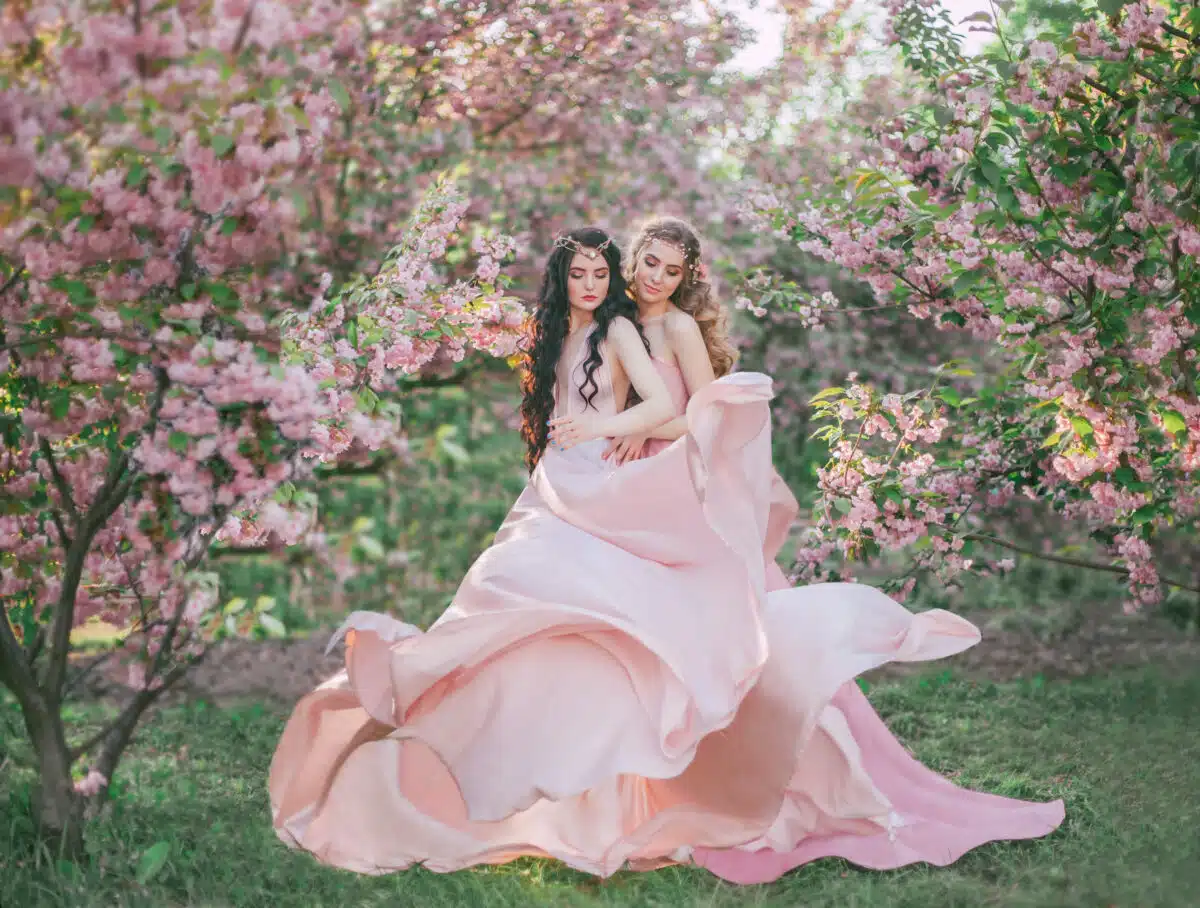
“Jim’s Kids” by Eugene Field
Jim was a fisherman, up on the hill,
Over the beach lived he and his wife,
In a little house—you can see it still—
An’ their two fair boys; upon my life
You never seen two likelier kids,
In spite of their antics an’ tricks an’ noise,
Than them two boys!
Jim would go out in his boat on the sea,
Just as the rest of us fishermen did,
An’ when he come back at night thar’d be,
Up to his knees in the surf, each kid,
A beck’nin’ and cheer-in’ to fisherman Jim;
He’d hear ’em, you bet, above the roar
Of the waves on the shore.
But one night Jim came a sailin’ home
And the little kids weren’t on the sands;
Jim kinder wondered they hadn’t come,
And a tremblin’ took hold o’ his knees and hands,
And he learnt the worst up on the hill,
In the little house, an’ he bowed his head,
“The fever,” they said.
‘T was an awful time for fisherman Jim,
With them darlin’s a dyin’ afore his eyes,
They kep’ a callin’ an’ beck’nin’ him,
For they kinder wandered in mind. Their cries
Were about the waves and fisherman Jim
And the little boat a sailin’ for shore
Till they spoke no more.
Well, fisherman Jim lived on and on,
And his hair grew white and the wrinkles came,
But he never smiled and his heart seemed gone,
And he never was heard to speak the name
Of the little kids who were buried there,
Upon the hill in sight o’ the sea,
Under a willow tree.
One night they came and told me to haste
To the house on the hill, for Jim was sick,
And they said I hadn’t no time to waste,
For his tide was ebbin’ powerful quick
An’ he seemed to be wand’rin’ and crazy like,
An’ a seein’ sights he oughtn’t to see,
An’ had called for me.
And fisherman Jim sez he to me,
“It’s my last, last cruise, you understand,
I’m sailin’ a dark and dreadful sea,
But off on the further shore, on the sand,
Are the kids, who’s a beck’nin’ and callin’ my name
Jess as they did, oh, mate, you know,
In the long ago.”
No, sir! he wasn’t afeard to die,
For all that night he seemed to see
His little boys of the years gone by,
And to hear sweet voices forgot by me;
An’ just as the mornin’ sun came up,
“They’re a holdin’ me by the hands,” he cried,
And so he died
“Birth and Death” by Algernon Charles Swinburne
Birth and death, twin-sister and twin-brother,
Night and day, on all things that draw breath,
Reign, while time keeps friends with one another
Birth and death.
Each brow-bound with flowers diverse of wreath,
Heaven they hail as father, earth as mother,
Faithful found above them and beneath.
Smiles may lighten tears, and tears may smother
Smiles, for all that joy or sorrow saith:
Joy nor sorrow knows not from each other
Birth and death.
“The Twins” by Charlotte Allen
I saw two lovely infants lay,
Both wrapped in gentle sleep;
A mother sat beside her babes,
Watching with interest deep;
And ne’er was seen a fairer sight,
Than those twin buds of beauty bright
While gazing on their tiny forms,
So spotless, pure, and mild,
I thought what were our Savior’s words,
In speaking of a child;
“Such are the objects of my love,
Of such my kingdom is above.”
Oh! who could deem those little souls,
Where pureness seemed engraved
Fresh from an Almighty hand,
Could be “totally depraved.”
If such can be an infant’s mind,
Where can we innocence e’er find?
Again I saw those infant twins,
E’er many months had sped,
Clothed in their little funeral shroud,
Laid in the earth’s cold bed.
If totally depraved they were,
Where now can be that infant pair?
Nothing depraved, as all allow,
Can enter Heaven’s dome;
And Christ hath said that children all
Should dwell within His throne.
Then, little infants must be pure,
To live with Him whose word is sure.
